“A Philosophy Student’s Journey from UP Diliman to SciencesPo, Paris” by Danica Grace Bautista
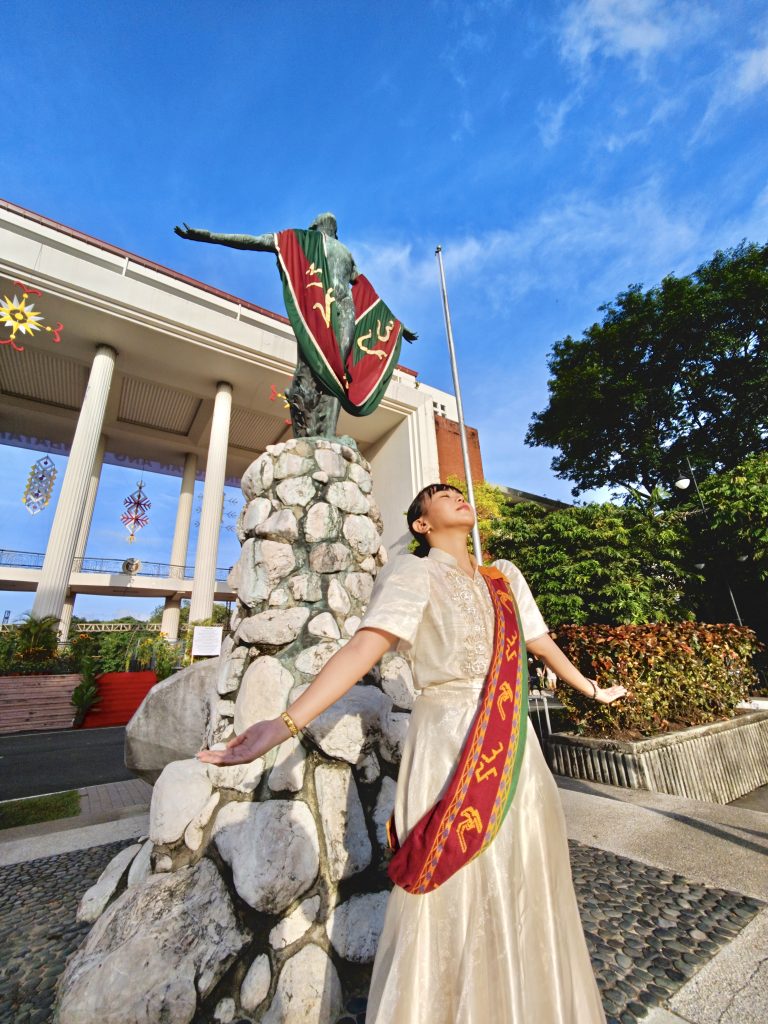

Daecia graduated Magna Cum Laude standing last July 5, 2025.
How far can Philosophy take you? It brought Plato to the World of Forms, beyond what one can physically perceive. Spinoza found God in the fabric of nature.
Meanwhile, it took me to the sun-drenched coast of the French Riviera.
I can still recall sitting by the Plages des Sablettes, or the Sablettes beach, in the golden town of Menton in Southern France. The cold September breeze embraced me as I watched the waves of the Mediterranean Sea gently lapping against the shore. Soft, pebbly sand crunched beneath my feet as I walked along the beach. Above me, the sky is a mixture of fading blues and the first hints of twilight purple.
Seagulls and pigeons fluttered overhead as they patiently waited for the right moment to steal pain au chocolat. Behind me, the vieilles maisons françaises or old French houses stood demurely. Their peach and pink pastels perfectly contrasted with the white and green mountains of Alpes-Maritimes.
Philosophy led me here.
When one ends up in Philosophy
Although “UP or nothing” was my motto when I was applying to college, Philosophy was not the first degree program I had in mind. Five years ago, I could not care less about my major as long as I get to tell people, “Taga-UP po ako.” Hence, initially, I studied Social Sciences (with a major in Economics at that!) in UP Baguio.
After a year, I decided to transfer to UP Diliman. Out of all the programs I applied to (particularly, Film and Social Work), I ended up pursuing Philosophy, arguably the best pre-law course, so they say, for aspiring lawyers like me. Frankly, I chose it because it sounds eccentric (or should I say edgy?) and I thought it fits the vibe of a cinephile who thinks studying a program with little to no employment prospects makes them cooler.
When I tell people what I study, I get the “Ooohhh” – the reaction that is a mix of awe, confusion, and mild concern. “Philosophy? Ano ‘yan? Anong gagawin mo d’yan?” people often asked.
How I wish I had told them before that this program would bring me to France.
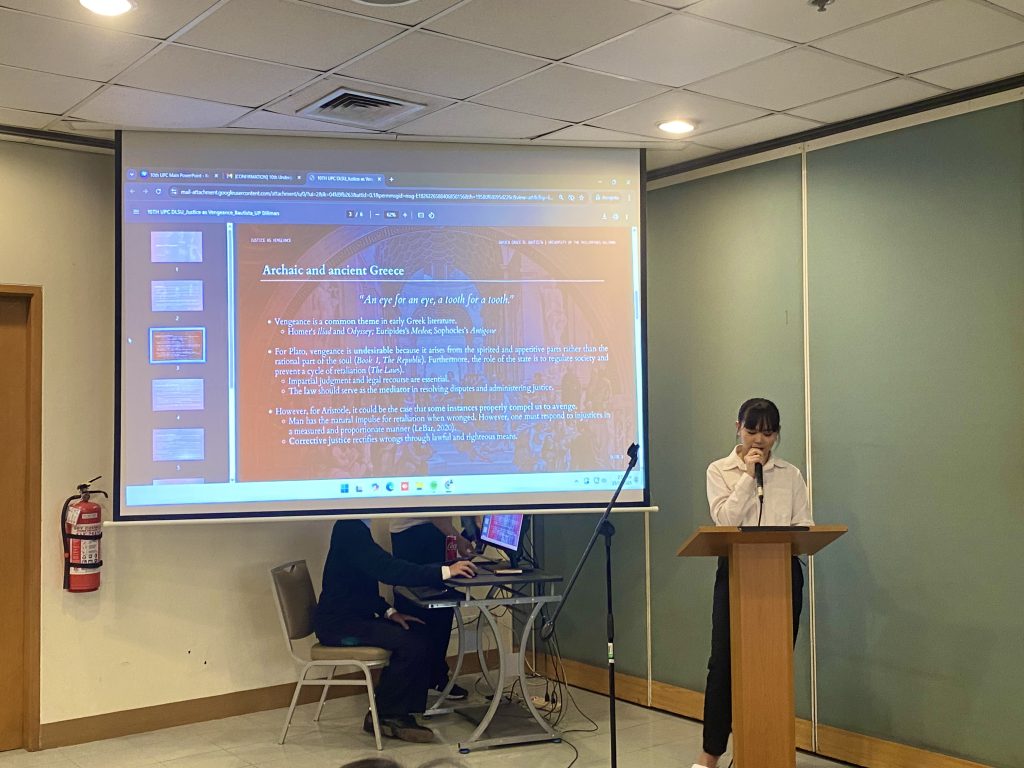 Daecia presented her original Theories of Justice paper titled, “Justice as Vengeance” at the 10th De La Salle University Undergraduate Philosophy Conference held last March 15, 2025.
Daecia presented her original Theories of Justice paper titled, “Justice as Vengeance” at the 10th De La Salle University Undergraduate Philosophy Conference held last March 15, 2025.
What Philosophy gave me
A lot has been said by my wonderful batchmates about what students can get out of Philosophy. Intellectual rigor, critical thinking, research and writing, communication, and speaking – some of the practical skills honed in the four corners of our classrooms. It is no surprise that some of the brightest minds the world has ever known arose from this discipline. Still, the criticism stands that Philosophy has yet to come down from its ivory tower.
Our duty as Pilosopong Iskolar ng Bayan – intellectuals with a heart for the masses – is to step outside our comfort zones and put theory into practice. Go beyond texts and treatises, and engage with the world as it is. Our ideas should not come from above, detached from the people they aim to describe (sorry, Plato). Instead, it should come from our experiences with and struggles of the very people we seek to serve.
And this is how Philosophy brought me to the other side of the world.
Not only did it give me the intellectual capacity, but it also inspired me to seek knowledge beyond borders. I never dreamed of studying abroad until I met my professors in UP Diliman who had degrees from Europe, America, and neighboring Asian countries. I thought it would be great if I could also take graduate studies in France or Japan. Little did I know that this opportunity would be given to me in my undergraduate years.
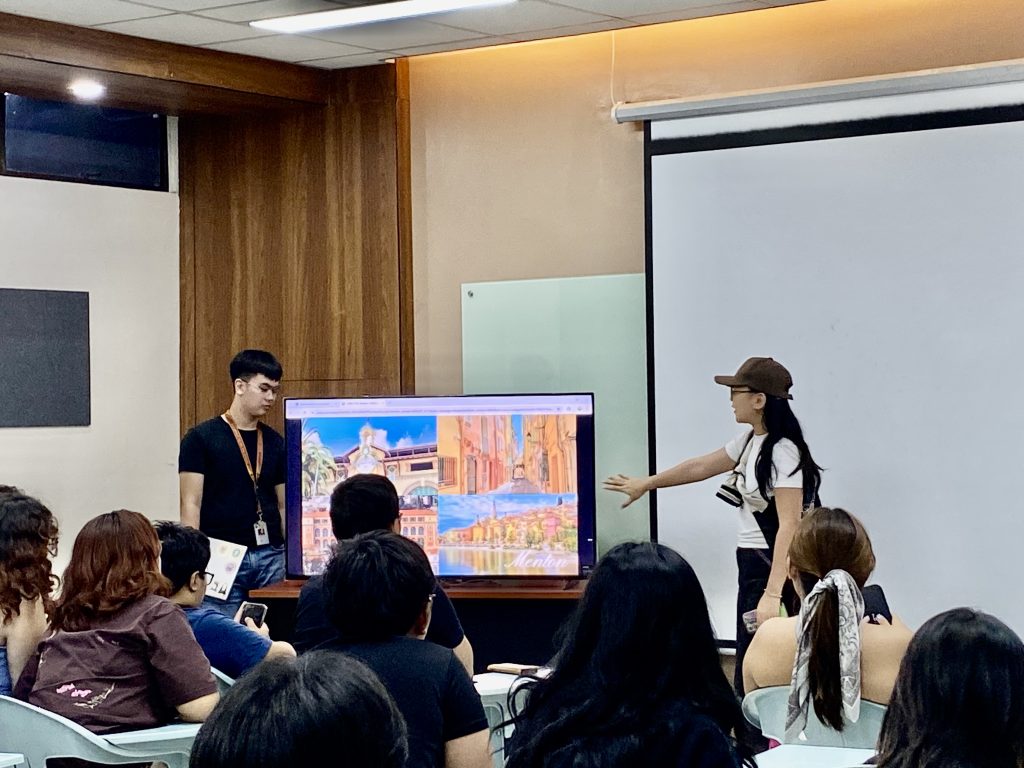
Daecia shared her LIPAD ARAL experience and invited Philosophy students to apply to the exchange program during the UP KAPITAS Applicants’ Orientation on March 13, 2025.
Applying for the exchange
In October 2023, I took my shot and applied for the LIPAD Aral International Student Exchange Program of the Office of International Linkages (OIL) UP Diliman. I wanted to study at the Institut d’études politiques de Paris (SciencesPo Paris), one of the best Political Science universities in the world and the number one in Europe.
Given my research interests in Political Philosophy, Theories of Justice, and Philosophy of Law (and my love for mountains and beaches), I naturally gravitated toward SciencesPo’s Menton campus, which specializes in International Relations and Law in the Middle East and North African (MENA) region. The campus offered the unique intersection of Law, Politics, Philosophy, and Global Affairs that would greatly supplement my studies in UP.
It was a long shot, really, considering I had never been abroad, never held a passport, and came from a low-income household. I never hoped for anything. I simply did not want to regret not trying when I had a chance.
I poured my heart into the application, writing essays about my dreams, my advocacy, and how Philosophy shaped the way I see the world. I asked for recommendation letters from my Philosophy professors (shoutout Sir Henry and Sir Totoy!), unsure if I was good enough for their endorsement.
I also asked for the support of our Department. I remember composing the email to Ma’am Ocampo, second-guessing every word. Would they think I was being too ambitious? Was I really worthy to represent the Department of Philosophy on an international stage? To my surprise, they responded with warmth and encouragement. The Department and the College believed in me, even when I could not believe in myself.
Weeks later, I received the news: I got in.
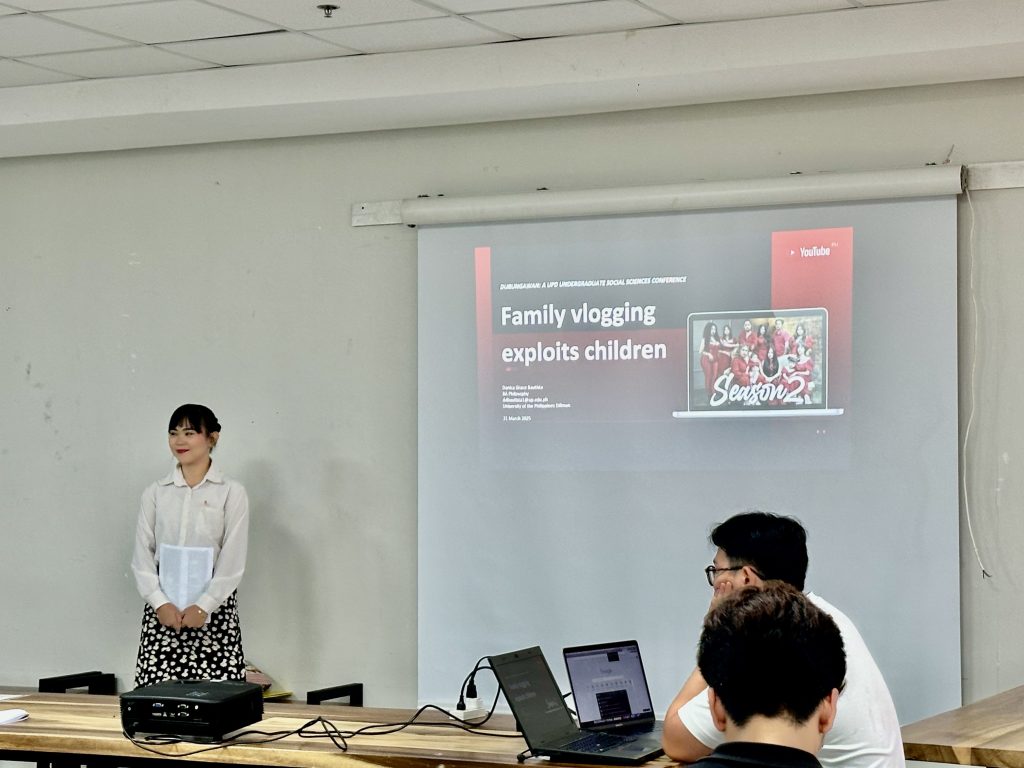
Daecia also presented her original paper titled, “Family vlogging exploits children” at the Durungawan: The UPD Undergraduate Social Sciences Conference 2025 held on March 31, 2025.
It takes a village
Despite getting into the program, I was worried that I could not afford it. At one point, I thought I would have to let the opportunity go. But through the MOVE UP Financial Assistance Program of the OIL System, I was given a grant to cover my flight tickets, insurance, and stipend.
Through the OIL Diliman and OIL System, students like me who do not have the means can dream bigger and reach farther. Their support made it possible for me to set foot in Europe for the first time and to thrive in an institution like SciencesPo. It was a testament that competent students from humble backgrounds can take part in the global academic stage, too.
Most importantly, my sister, Dter D. Bautista, who took on the role of our family’s breadwinner, made it possible for me to say yes to this opportunity. She carried the burden of my dreams. She gave me this once-in-a-lifetime experience. It was her sacrifice that allowed me to pursue something we never thought was within reach.
After a year of asking for signatures and documents, attending pre-departure orientations, and processing visa applications, I finally boarded the plane from Manila to Nice. It felt surreal. Suddenly, the little girl who had only dreamt of studying in UP was going to study abroad, representing the University. From August 2024 to January 2025, I lived, studied, and traveled in Europe. It was the second-best semester (nothing tops the first face-to-face semester in UP after the pandemic, of course!) of my college life.
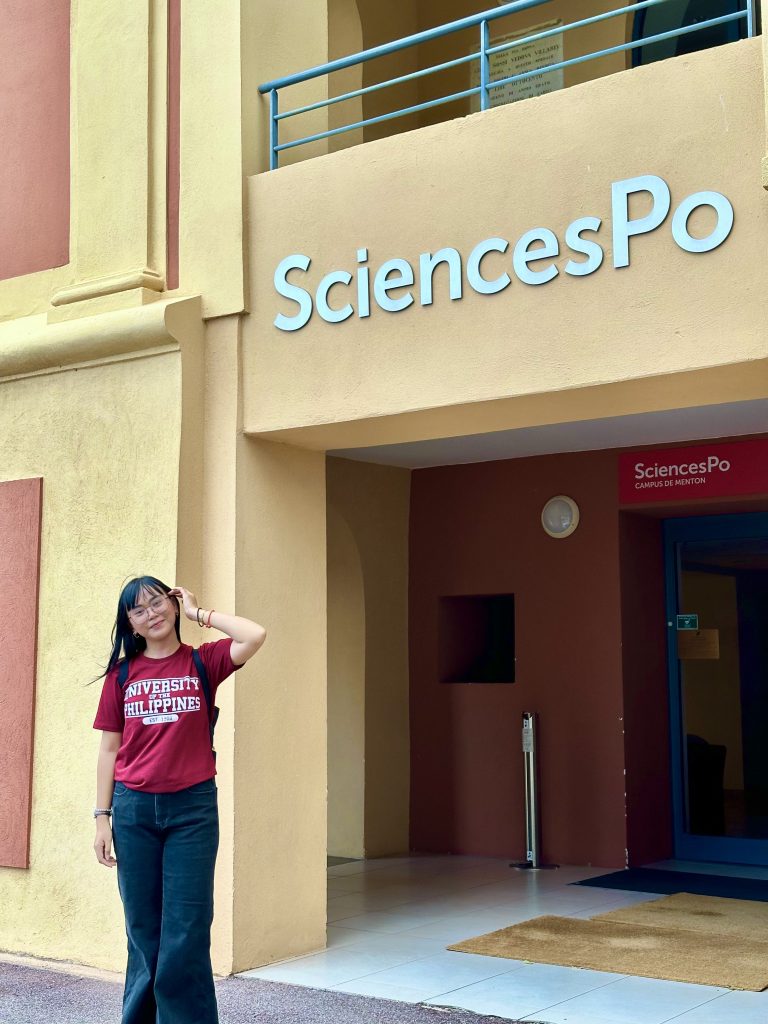
Daecia during her first day of classes at SciencesPo Menton.
Every new experience I had, every lecture I attended at SciencesPo, and every place I visited in Europe, I carried with me the understanding that none of it would have been possible without the support of my professors, the Department and the College, and my family and friends. I owe it to the Filipino taxpayers who, through public education and scholarships, made this journey possible.
My semester exchange abroad has become a defining chapter of my life. It showed me that Philosophy can be more than just arguing over definitions of justice and criticizing a philosopher’s idea. It is also about learning to sit with difficult questions and embrace the discomfort of not knowing. The purpose of philosophy, then, is to help us understand the world more deeply and change it for the better.
At SciencesPo, surrounded by students from all over the globe, I realized how powerful our training as UP students is. The constant push to ask, “Para kanino?” is exactly what makes UP education the best. I never felt less competent than my peers abroad. From my experience, I have proven that being an Iskolar ng Bayan means being a world-class student.
Additionally, Philosophy is the most humanizing degree program there is. It teaches you not just how to think, but how to feel; how to empathize with others, how to recognize the dignity of every human being regardless of their background. It forces you to confront your biases, interrogate your assumptions, and listen to perspectives different from your own. It asks you to be honest in the way you live your life.
Living and learning in France also taught me humility. It reminded me that while ideas can be universal, experiences are not. It made me more grounded and more aware.
And to those who dream of studying abroad, just do it. You do not need to come from wealth to deserve a place in global classrooms. You just need the courage to try. It can be daunting to apply, ask for support, and imagine yourself in spaces you have never stepped into before. But let me tell you one thing: you belong there, too.
So take the shot. Write the essay. Ask for the recommendation. Apply for the grant. Even if you are unsure, even if you think someone else is more deserving, do it anyway. Because someone like you, someone who dares to dream beyond what seems possible, is exactly who the world needs more of. And when you get there, carry your roots with pride. Represent your community, the University, and the Philippines with all your heart.
Show the world the honor, excellence, and service of an Iskolar ng Bayan.
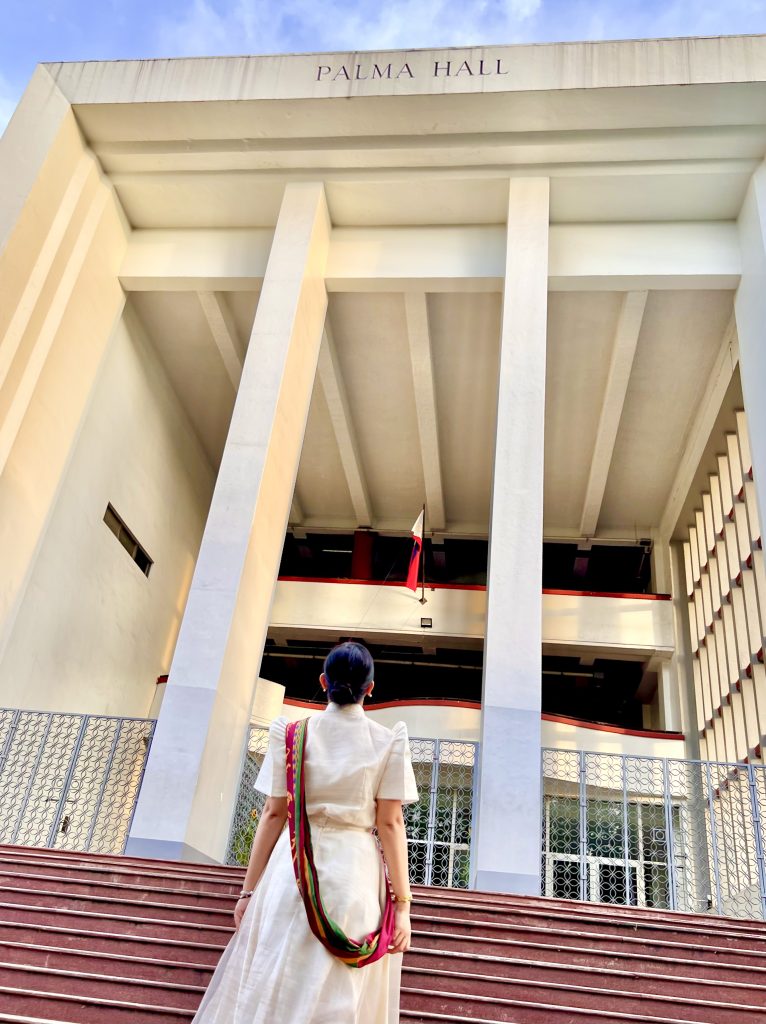
Daecia graduated Magna Cum Laude standing last July 5, 2025.
About the Author
Danica Grace “Dae” Bautista recently graduated Magna Cum Laude standing from the UP Diliman Department of Philosophy. She presented at several conferences, including the Durungawan: The UPD Undergraduate Social Sciences Conference 2025 and the 9th and 10th De La Salle University Undergraduate Philosophy Conference. She was one of the hosts and student organizers of the Emmanuel Q. Fernando Philosophy Undergraduate Conference and Paglulunsad: A Send-Off for BA Philosophy Seniors. Dae participated in the LIPAD ARAL International Student Exchange Program, where she studied at SciencesPo in Menton, France, during the Fall Semester of A.Y. 2024-2025. She was also accepted to the Master’s Governing the Large Metropolis Program of SciencesPo Paris and waitlisted for the Emily Boutmy Scholarship. She loves volunteering and organizing events. She is also a film and visual arts enthusiast. Dae dreams of becoming a lawyer and a policymaker for the people someday.
“Inquietus Cordis: Philosophy and My Faith” by Kirk Gabriel Gatapia
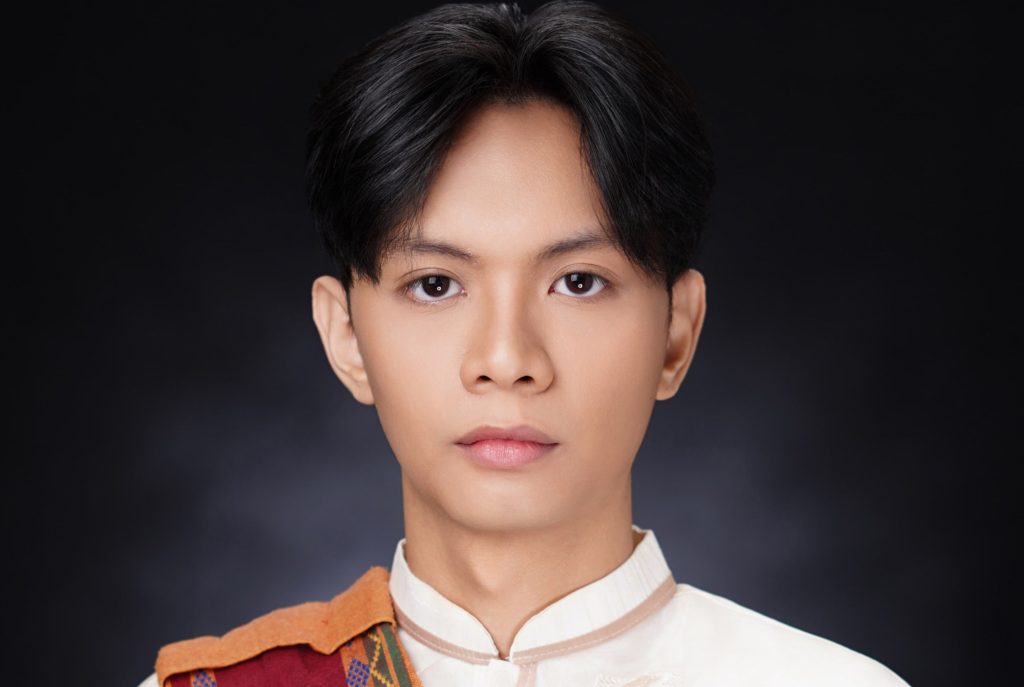
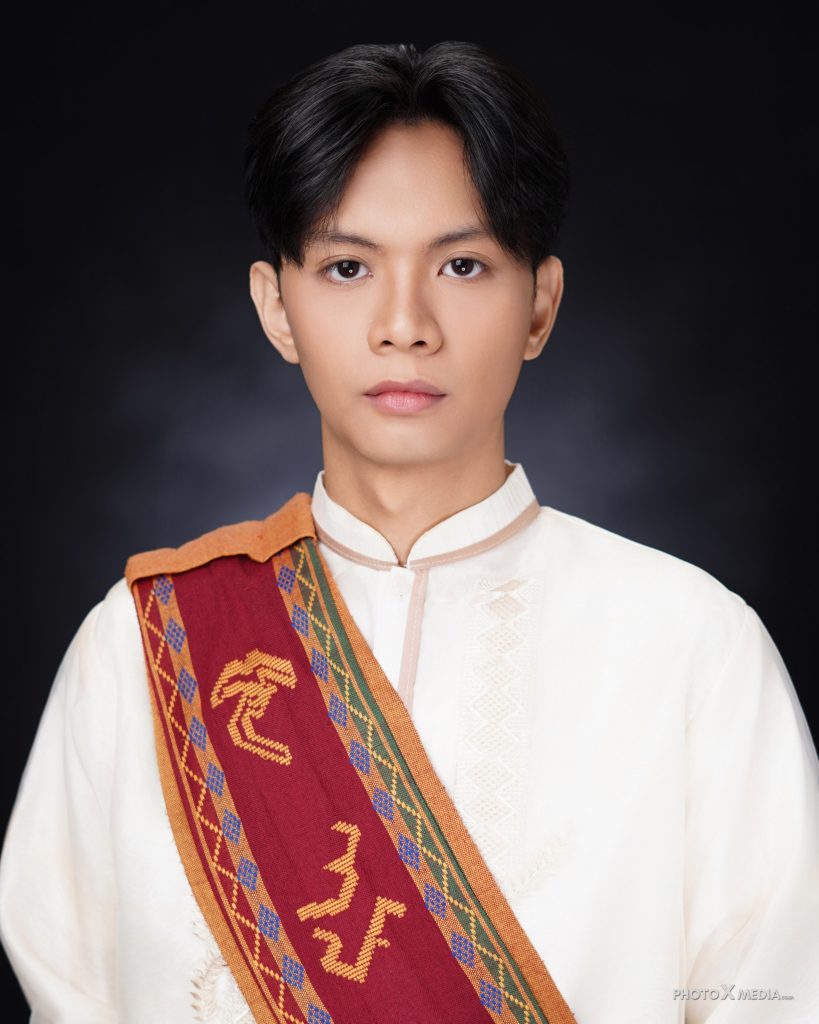
“Happy the man who meditates on wisdom, and reflects on knowledge; Who ponders her ways in his heart, and understands her paths; Who pursues her like a scout, and lies in wait at her entry way.” (Sirach 14:20-22)
Not beating the allegations.
The “mountaineering” accusations towards UP students is the greatest stereotype (you’ll hear it a lot!). Ranking third, in my opinion, is that UP students are atheists (or that by studying in UP one becomes an atheist). The name of the institution alone should raise the eyebrows of highly conservative communities and families. Well, it is not untrue that there are high chances one might change beliefs as they strive along the path of university scholarship. After all, education should teach a critical attitude towards reality. I think it’s neither something we should frown upon nor should it be a subject of anger. Having met many people in the university, each hailing from different backgrounds and espousing different worldviews, all I can say is that such diversity is beautiful (and something we must treasure).
Now, going back to the allegations, if we layer in the fact of “being a UP student” with “being a student of philosophy”, all the more the accusations become stronger. Surely someone who questions and doubts everything is someone who does not adhere to anything religious or superstitious beliefs or faith, right? The history of western philosophy may be a testament to this. The ancient Greek philosophers wished to depart from the mythical explanations of world events and to turn to a more naturalistic and logical understanding of phenomena. But through the same means we can also see that along the timeline, faith and reason become intertwined (as in most medieval philosophical discussions), not as clashing approaches but each supporting another towards the innate human thirst for truth. And it is echoed by contemporary Christian thought, John Paul II says that “[f]aith and reason are like two wings on which the human spirit rises to the contemplation of truth.” (Fides et Ratio, 1998). Allow me to share some of this intertwining in my UP life.
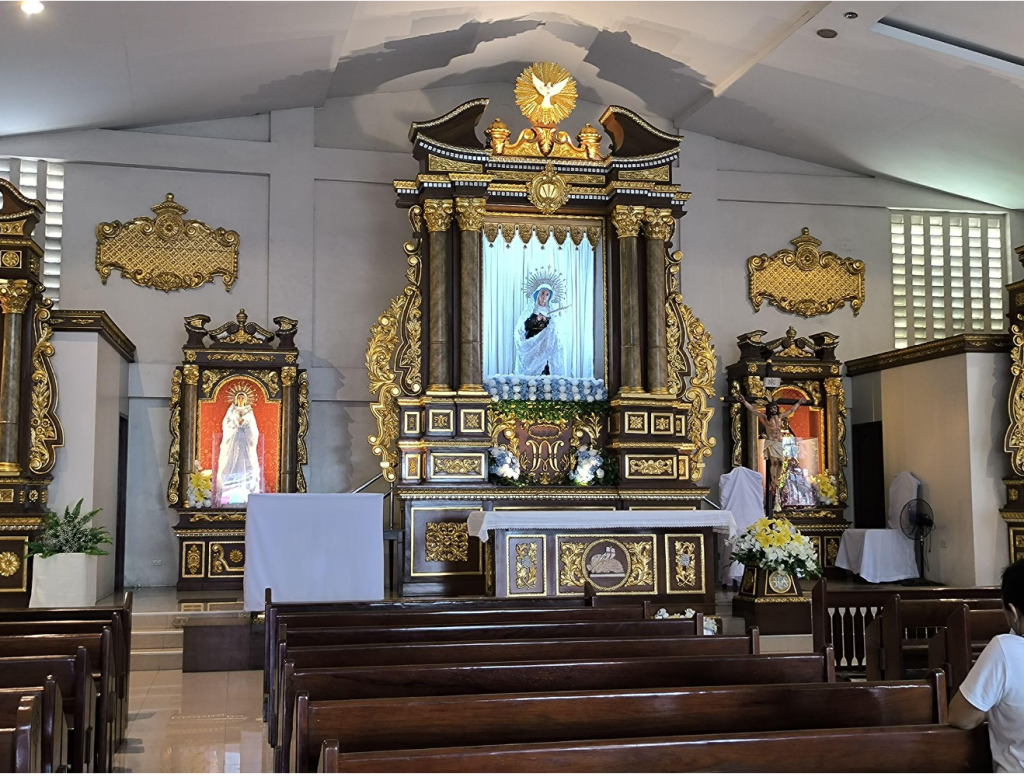
What shape does faith take?
Long before I entered UP, admittedly, my faith was already wavering. (Do mind that I was then still in a very religious institution). Mostly that was due to my early encounters with philosophy, I brought the newly formed curiosity towards approaching religion. So, indeed, I admit philosophy might make you an unbeliever or at least will make you question what seems to be absolute in the religious field. Nothing changed coming into UP; that critical attitude towards unreasonable belief lingers. Although I am critical of it, I also do not have any reason to abandon it, maybe the sense of comfort–from the uncertainty of things–that religion can offer, stayed within me. Coming into UP also surprised me. While it is true that there are a lot of those who are critical of religion, it is also true that UP will not necessarily force you into abandoning what you think is valuable. I am more surprised because I have met people who are more ardent in their faith than anyone I know and some of them are taking philosophy. They are more qualified to write about this senior spotlight topic! With the years I spent studying philosophy under the department and my encounters with people of different faiths, I can say that it helped me realize what form this God-given reason and faith should take. I can say that several philosophy classes helped me realize what I have now. For example, believe it or not, Logic helped me in this aspect. Some beliefs should be consistent with each other (I’ll give an example in a while). Also, Socio-Political philosophy, Philosophy of Law and Ethics became an extension of this inquiry towards faith, truth, and religion. They served as an avenue to check the application of our theories to real life experiences and social structures. For example, should we pattern our actions and rules to what nature presents us or should they be made to best fit our interests? Metaphysics and epistemology check our commonly held beliefs and gauges them with the theoretical and scientific advancements of today’s world. Maybe we can ask, “how well does the ontology of a religion as forwarded by their scriptures fit into what we know so far?”. Finally, the department offers Philosophy of Religion, which applies an analytic approach towards looking at the structure of religion. Touching upon topics such as human behavior and their beliefs, problem of evil, evidence and miracles, and so much more. I have to admit I failed to enlist such an interesting class, however I can tell that it is a good philosophy class to take because of my friends who would speak of Aquinas and William James whenever we touch upon philosophy of religion topics. I never realized back then that I can apply the approaches of those philosophical fields towards my restless inquiry about faith and the divine.
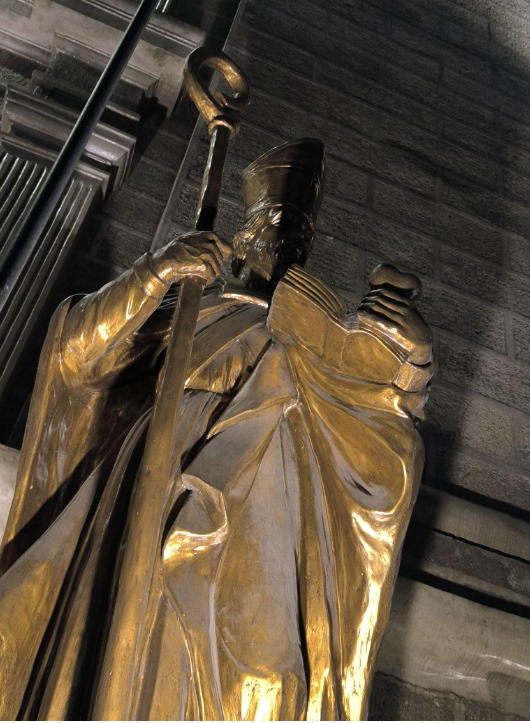
A ladder to ascend or a pit to fall into?
After careful reflection, after four years of philosophy, at least for now, I know what form my attitude towards faith should take (relative to philosophy or reason). I do not need to drop anything. John Paul II might be onto something: that faith and reason go hand and hand towards truth. Philosophy–being a second-order discipline–keeps my belief system in check so that it does not stray from its goals. On the other hand, faith engenders the path, setting out where to walk. But what goal and path? If the goal of faith is to attain the truth hidden behind mysteries, and we know that it was said that “truth will set [us] free” (Jn 8:32), then don’t we have good reasons to believe that faith should be liberating? Hence, when a belief or faith becomes oppressive, let it be anathema. Philosophy is there so that no belief system should ever dispose of human lives again for its self interest. True faith should not favor discrimination in attempts to unify. An ascent towards truth can never be good if it incurs injustice and oppression. There should be consistency in beliefs towards valuing life and preference for government leaders. Faith and philosophy should usher in liberation. In many instances throughout history, we know that the uncritical attitude towards a lot of systems and ideologies end up causing destruction and degradation. There is neither a need to drop faith for philosophy, nor a need to admit to the credo in absurdum. Our pursuit towards understanding the mystery of our reality should not be lazy.
I am wondering how to end this essay and I remember a line from the movie Conclave (2024) directed by Edward Berger, based on the novel of the same name by Robert Harris (2016). I like the way the character viewed the dynamics between faith and doubt. Not all will agree to it, but I think it is worth pondering about. “Certainty is the great enemy of unity. Certainty is the deadly enemy of tolerance. Even Christ was not certain at the end. ‘My God, my God, why have you forsaken me?’ he cried out in his agony at the ninth hour on the cross. Our faith is a living thing precisely because it walks hand-in-hand with doubt. If there was only certainty and no doubt, there would be no mystery. And therefore, no need for faith.” (Ralph Fiennes as Cardinal Lawrence).
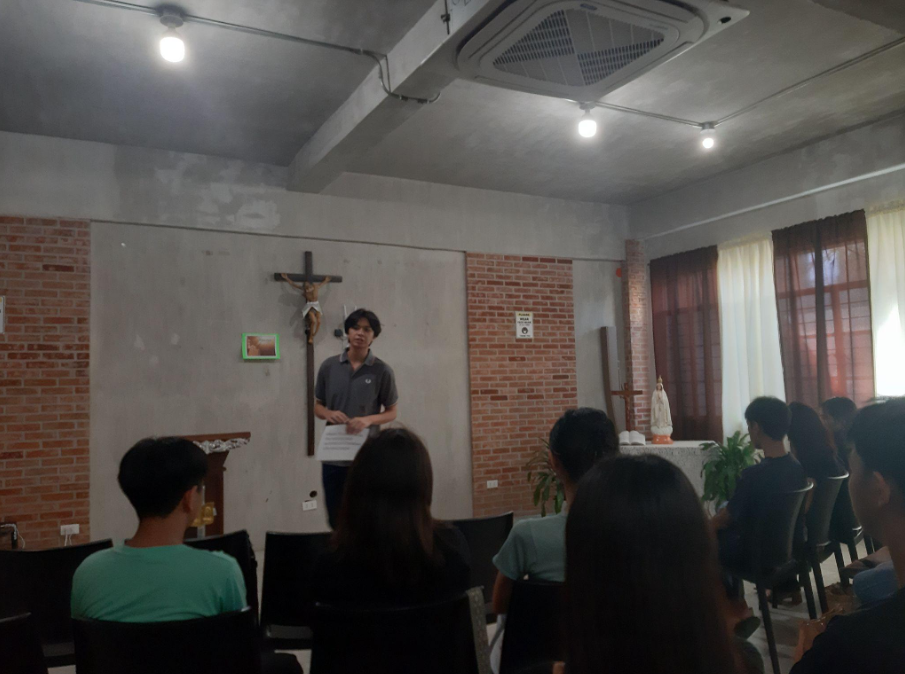
“Bridging Cultures Through Philosophy: From BA Philosophy to Diplomacy” by Aya Inafuku
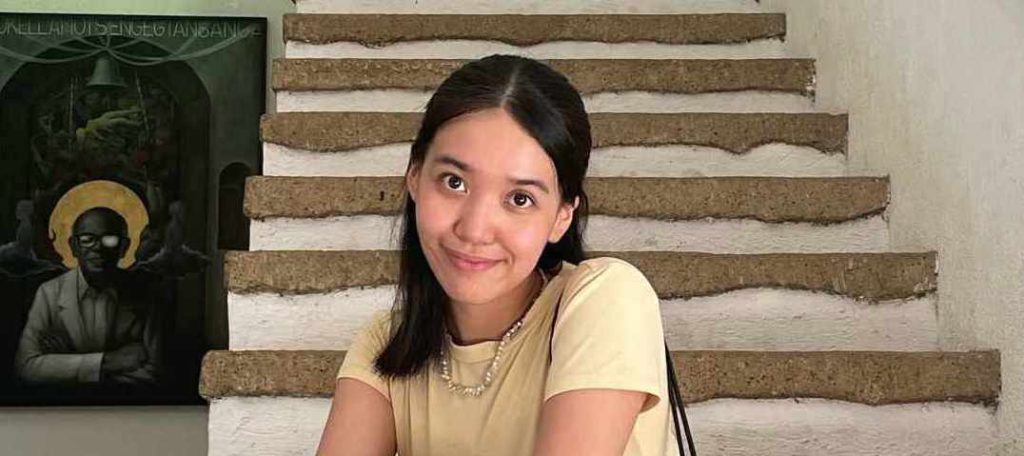
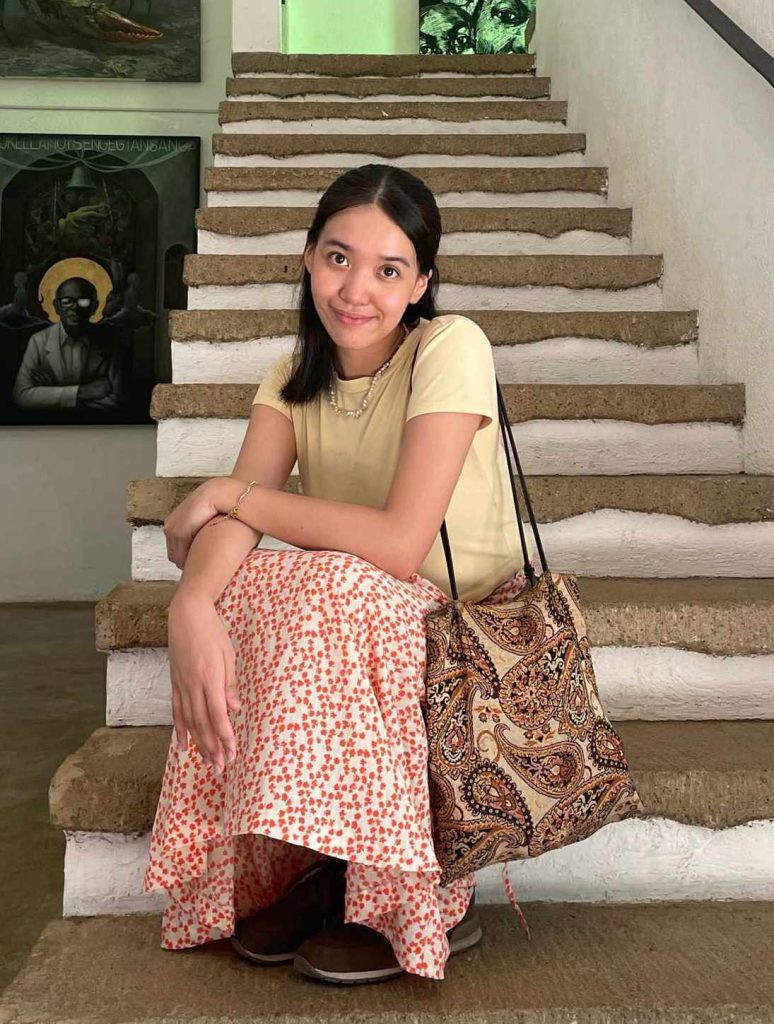
I grew up negotiating in the spaces between. Between two countries. Between languages. Between the idea of who I was and what was expected of me because of my identity. From the early stages of my life, I learned how to negotiate in order to belong and be understood. Being born in the Philippines and raised in Okinawa, I carry with me two communities whose histories mirror each other more than one might expect. Coincidentally, both also understand what it means to continually “negotiate” for what is inherently theirs: their land, their culture, and their dignity.
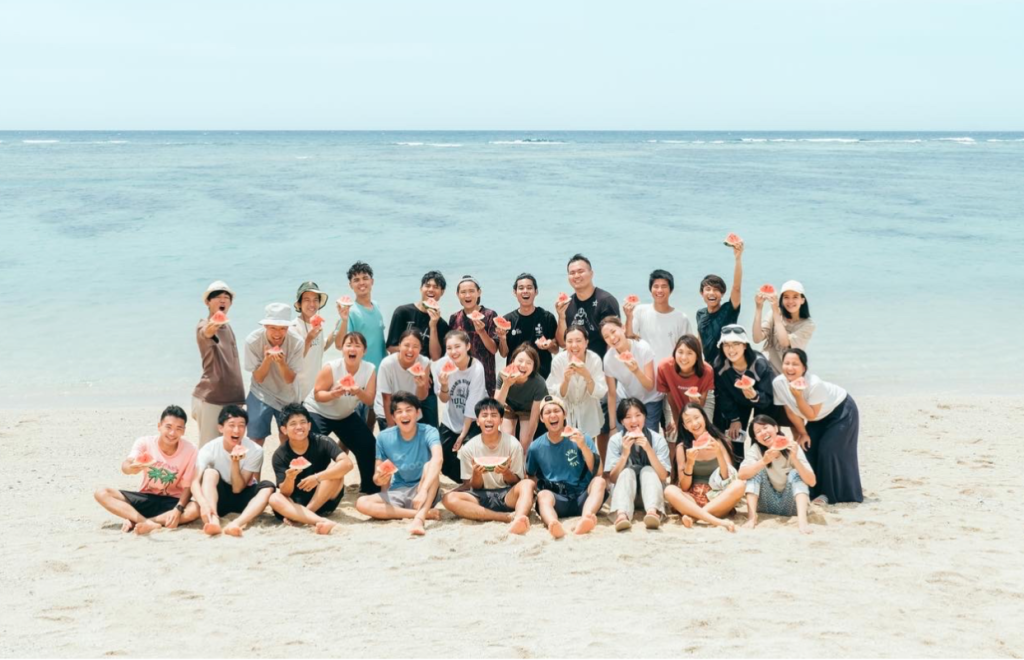
GAT (@gat_giveandtake) was a youth-led environmental organization I was part of during the pandemic. It consisted of university students and environmental activists from all over Japan. This picture was taken when we toured the members around Okinawa. I was active from 2022-2023.
Despite having only 0.6% of Japan’s land area, my home island, Okinawa, hosts 70% of the U.S. military bases in Japan. I spent my childhood with the sounds of the Osprey aircrafts flying overhead, and was taught that the massive land beyond the tall, chain-link fences was an area that I can never freely step foot in. People from my island have protested for decades against the numerous accidents, crimes and disruptions associated with the U.S. bases, yet they remain overlooked in Japan’s national policy and in diplomacy between the U.S. and Japan.
Understanding the issues in Okinawa deepened my interest in diplomacy. The questions surrounding diplomacy and representation—regarding whose voices are included in terms of current international debates and negotiations, or whether certain things should even be negotiated, rather than simply recognized as rightfully belonging to a community—have inspired me to get to know more about different cultures, communities and the stories they hold. This deepened my love for my Okinawan roots, and encouraged me to explore it more from different perspectives throughout my teenage years. From learning more about The Battle of Okinawa, to practicing Karate (an Okinawan martial art) and modernized Kumi Odori (an Okinawan traditional dance) for more than half of my life, I’ve dedicated myself to understand not only the cultural expressions of my identity, but also the historical struggles that have shaped my community.
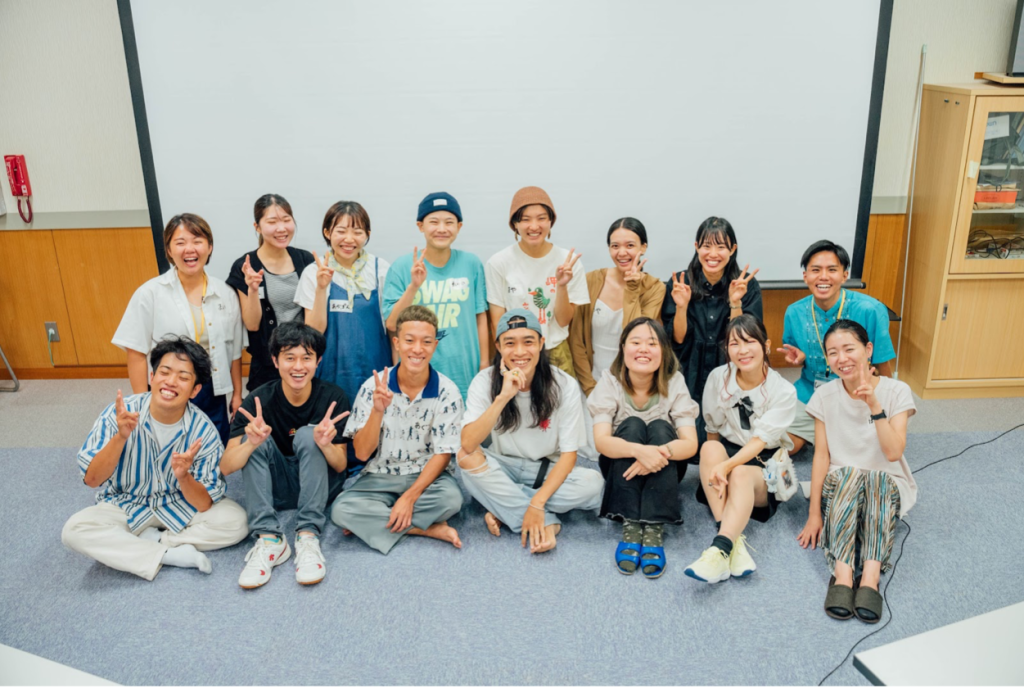
Workshop with social activist Shun Takenaka, during Chikyuu Kouken Gakuen event with GAT.
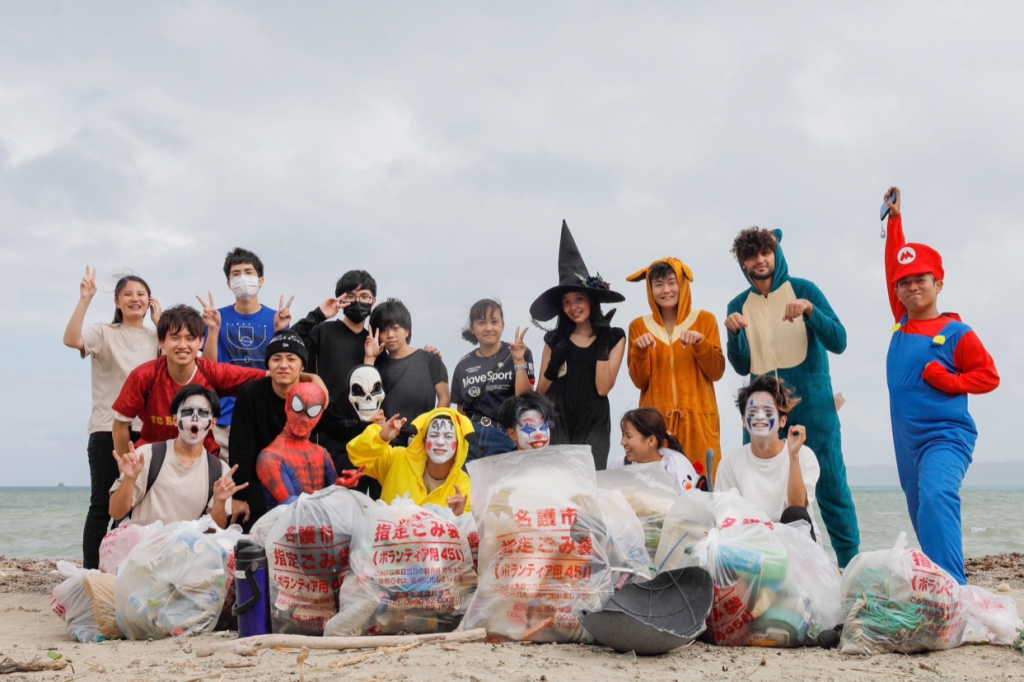
Monthly Beach Clean Ups with friends in Yomitan City, Okinawa. This was taken during Halloween 2022.
If so, you might ask, Why did you choose to take BA Philosophy in the University of the Philippines Diliman?
My love for the Philippines is something I deeply owe to both of my parents, especially to my mother. Ever since my siblings and I were young, my parents never failed to remind us to always be proud of our Filipino heritage (which is, unfortunately, becoming more and more uncommon amongst Filipinos in Okinawa nowadays). The Filipino language was constantly spoken in the household, Filipino food was a staple menu, and YouTube archives of TV Patrol always played on TV before we went to bed. However, in contrast to my understanding of Okinawan culture, that of the Philippines has always felt distant and superficial. It was something I’ve only known through books and screens. I wanted to truly experience and understand what I was describing when I spoke about Filipino culture, my culture, to other people. The desire to study in the Philippines, specifically, at the University of the Philippines eventually grew bigger during high school.
Choosing Philosophy as my course felt like a natural decision. In my highschool’s International Baccalaureate (IB) Diploma Programme, I took a course called Theory of Knowledge (TOK). There, we mainly learn and analyze knowledge claims, explore theories and knowledge questions, and engage with thinkers such as Plato, Descartes, and Wittgenstein. Every TOK class was eye opening, and made me realize that furthering my study in philosophy will expose me to more ideas, will train me to see the world through multiple perspectives, and help understand different conceptions of truth. That’s when my dream of pursuing Philosophy in the University of the Philippines came into clear focus.
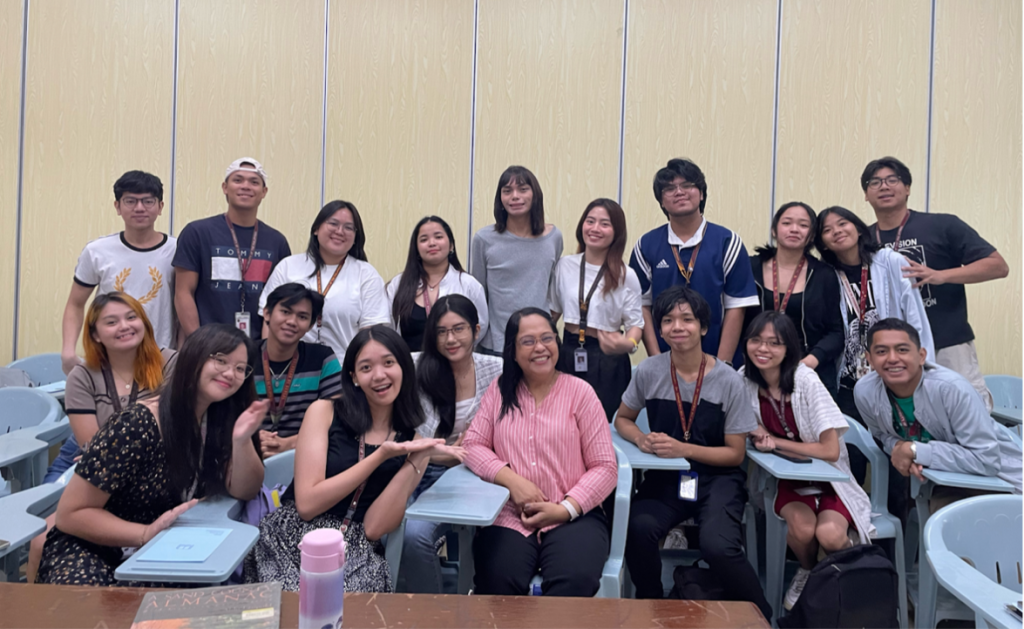
One of my favorite classes in UP, Philo 173 (Environmental Ethics) under Prof. Jeanette L. Yasol-Naval, PhD. My introduction to Filipino Environmental Ethics.
As expected, being a foreign student was not easy. I had to adapt to a new academic culture while simultaneously navigating through lifestyle differences in a foreign country all by myself. Looking back, these very challenges helped me develop key skills that I believe are essential in diplomacy: cultural sensitivity, critical thinking, and the ability to communicate clearly across different perspectives. Philosophy taught me how to listen, question, and negotiate better—all of which are vital when working in multicultural environments. While juggling both my philosophy classes and advocacy work, I came to appreciate the true value of philosophy as a discipline. Philosophy should engage beyond the academic theories and its literature, and apply to real-life issues that we are currently facing today as well. After all, what is the use of knowledge if we do not intend to use it?
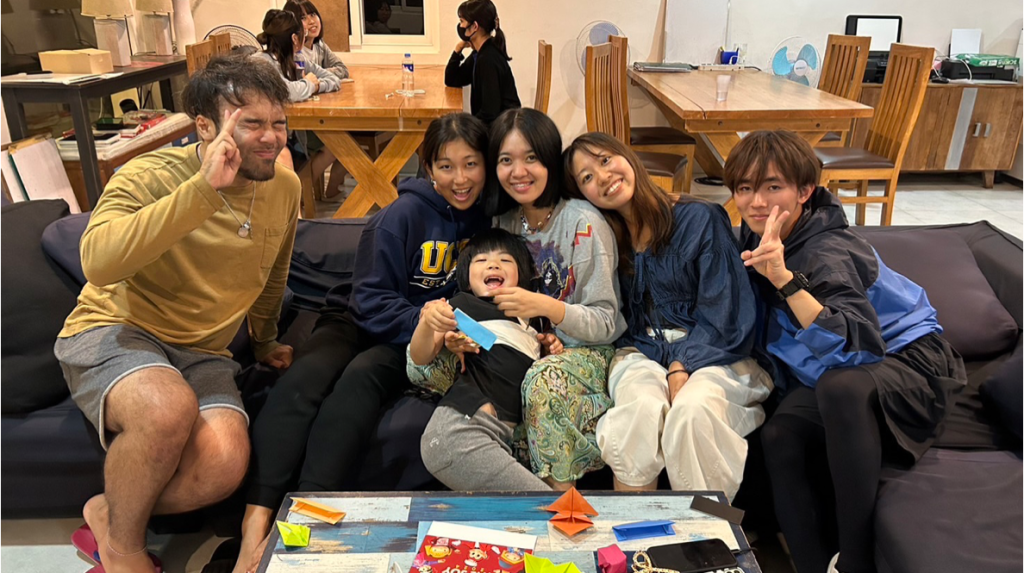
In 2023, I was also a Project Management Intern in AIAP Language School, located in Tagaytay, Philippines.
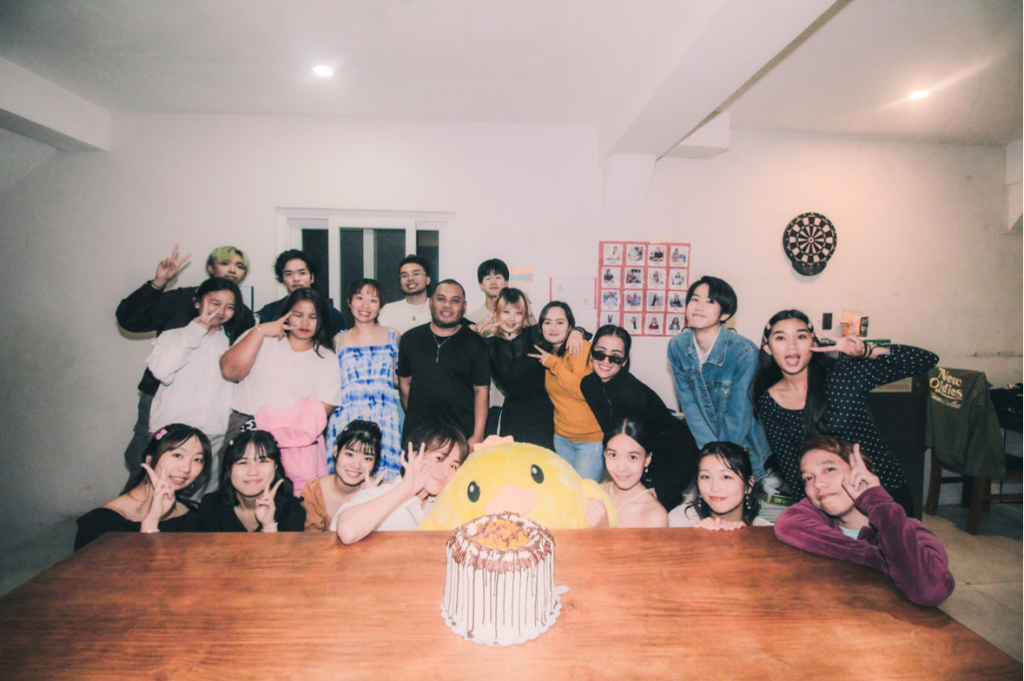
My last day as a Project Management Intern in AIAP Language School.
With that in mind, the notion of philosophy as a discipline has always been at the heart of every activity I participated in. From my experience, philosophy has always thrived in collaborative spaces that are beyond the academe, whether it was in a youth-led environmental organization that my Japanese friends and I created during the pandemic, or in weekly Community of Inquiry sessions from my university organization.
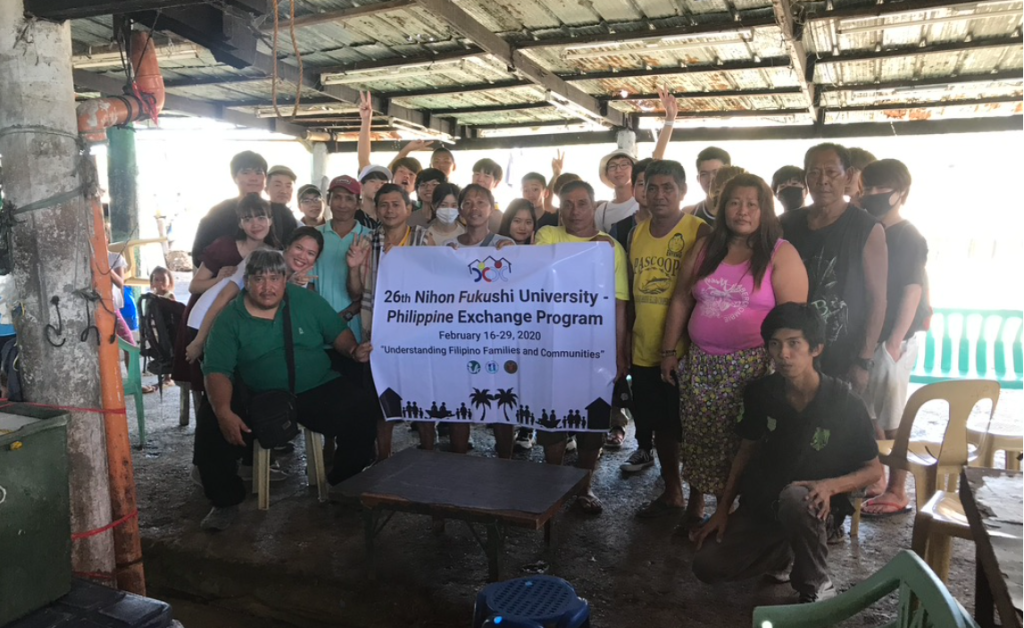
I volunteered as an Japanese-Filipino-English interpreter under the Office of International Linkages Diliman for 26th Nihon Fukushi University – Philippine Exchange Program, 2020.
As I move forward from college, I plan to begin my path through international cooperation work, particularly under The Japan Forum (Kokusai Bunka Forum) and JICA (Japan International Cooperation Agency), where I hope to contribute to grassroots, people-centered progress focusing on multicultural education and community development. Working on the ground with diverse communities across Asia and the Pacific will help deepen the kind of understanding I believe diplomacy requires. Eventually, I plan to take the Specialist Officer exam and enter the Japanese Ministry of Foreign Affairs, carrying with me the memory of Okinawa and the Philippines, the education I received in the University of the Philippines, and the commitment to serve both countries through bridge-building, empathy, and philosophical dialogue.
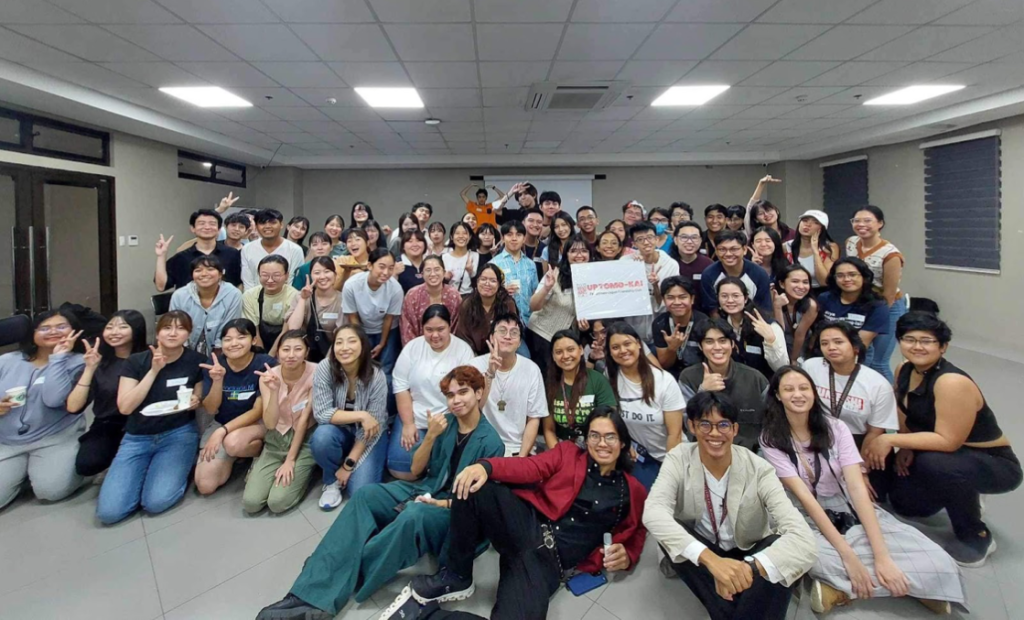
My home organization since I was a freshman, UP Philippines-Japan Friendship Club, also known as UP Tomo-Kai
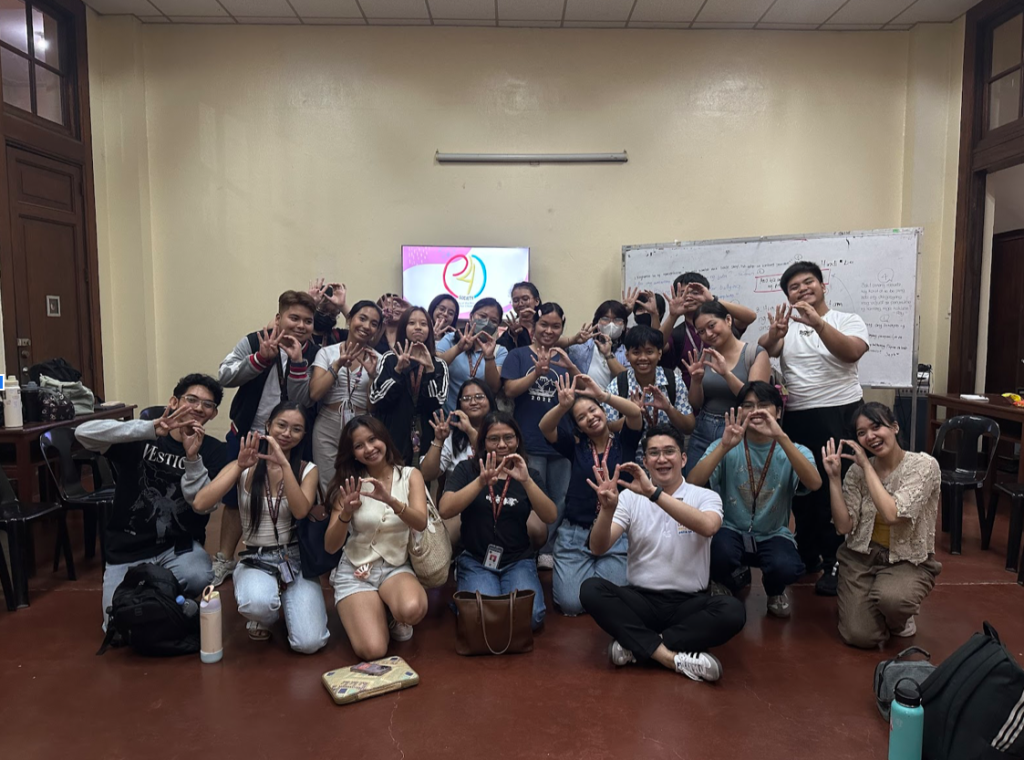 Community of Inquiry session with College of Education students, under UP Philosophy for Children Society.
Community of Inquiry session with College of Education students, under UP Philosophy for Children Society.
If there is one thing I hope you take from this (as a reader who may be considering a BA in Philosophy from the department), it is to move beyond the notion of Philosophy as just a pre-law/medical course. I won’t deny that Philosophy can serve as a strong foundation either for law school or medical school; in fact, there is no doubt that it’s one of the best preparations, if those are the paths you intend to take. But Philosophy can also be so much more than that. If your aspiration goes beyond law or medicine, it still will provide you skills that are essential in diplomacy, public service, business, policymaking, education, and any field that is based on flexible thinking and ethical reasoning. At its core, philosophy will not just develop your ability to think and listen carefully, but also the ability to ask the right questions with empathy. With all this considered, it will train you to become not just a better lawyer, diplomat or teacher, but ultimately, a better person.
About the Author
Aya Inafuku (稲福彩) is a graduating BA Philosophy major from University of the Philippines Diliman. She is a full-time international student from Okinawa, Japan. She is passionate about environmental studies, international relations, and indigenous art. Her advocacies are grounded in the belief that indigenous communities must be included in global conversations about climate justice, education and international diplomacy.
“BA Philosophy and the Path of the Law School Student” by Junno Salvanera
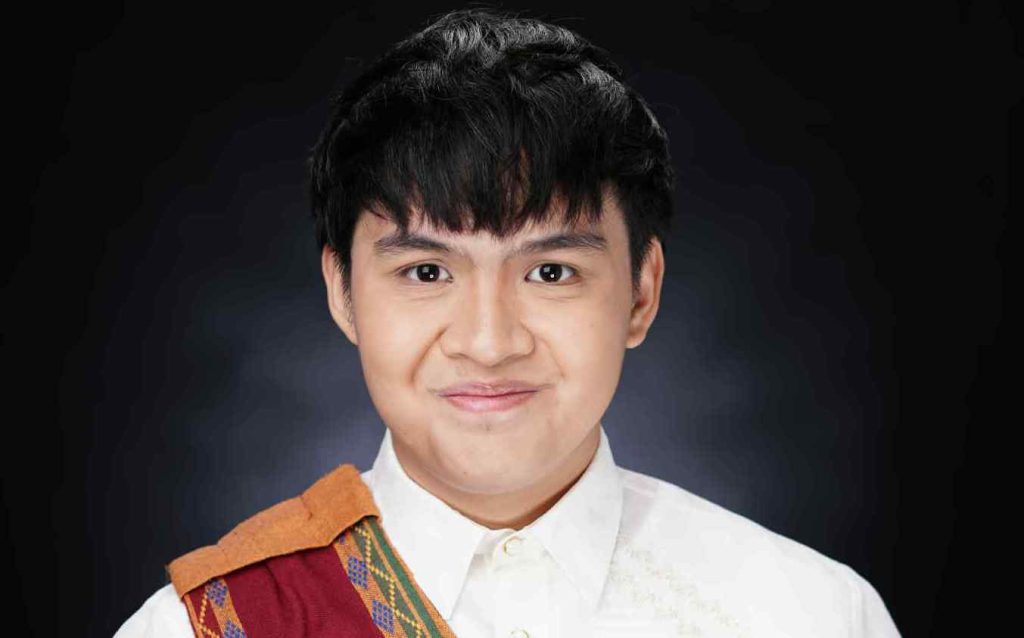
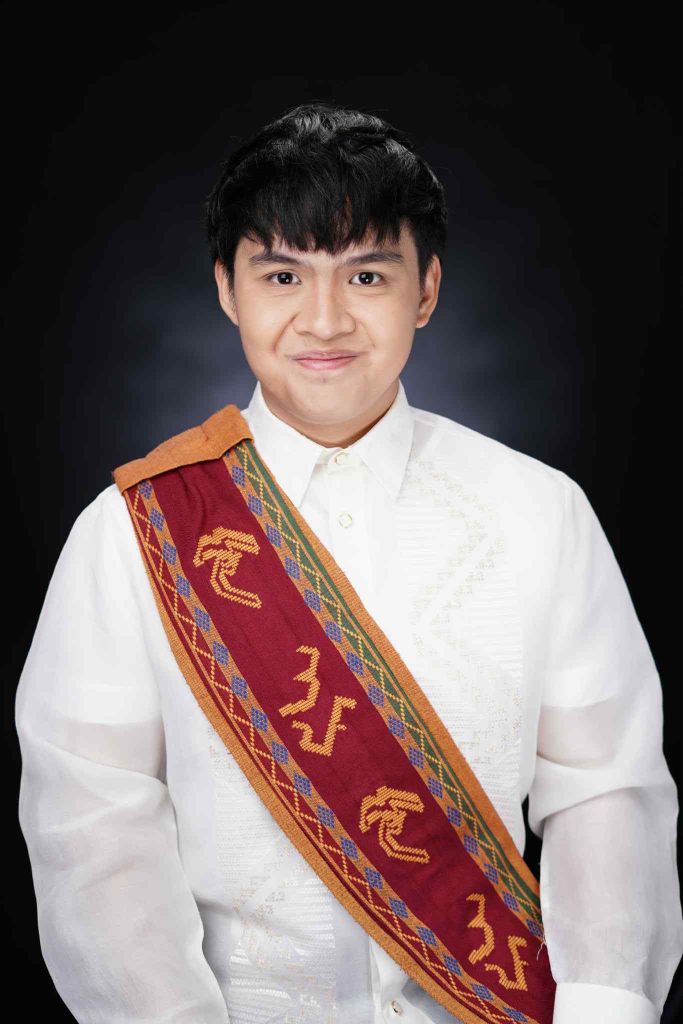
Junno is poised to graduate magna cum laude in a week’s time.
“Philosophy is the best pre-law” is perhaps one of the selling points for Philosophy in the eyes of aspiring law students looking for a course that will help them gain the skills needed in law school. The common perception is that philosophy provides one with the skills in logic, critical thinking, and reading comprehension. After thousands of pages and lectures from the works of Plato, Russell, Wittgenstein, Rawls and a wide range of philosophers, one will no doubt acquire these aforementioned skills. Another reason why it is the best pre-law is perhaps because the course tackles several philosophers of law that will allow one to understand the nature of law. Furthermore, perhaps because the nature of related concepts such as justice, politics, and morality is extensively explored. So, is philosophy the best pre-law? After my four years of studying in the department, I would agree not totally because of the aforementioned reasons; in my opinion the answer is more complicated than that.
A Double Take on the Concept of Law
What, then, sets UP analytic Philosophy apart from other courses in UP? The first that comes to mind is deeper delving into abstract concepts that are usually applied in cases of law. Throughout my years in the department, I am able to further analyze problems in distributive justice, individual liberty, and human rights. In my opinion no other course thinks about these concepts in a much deeper sense. We tend to take them for granted especially in their applications, often focusing on outcomes and data. But what backs the data? We use the terms lawful, legal, or illegal loosely, as if it is something unquestioned and widely accepted. How can we really say such action is just on the basis that it is lawful? Is lawful equal to just anyway? Is it something that comes natural to all humans, or is just posited by lawmakers and society? These are the things we think about in philosophy. Sure, other courses may offer information regarding law in itself, but its nature is not extensively explored. Yet, we are taught that before delving into such details, deeper meaning into abstract concepts is needed. In this way, we may know the relationship between law and justice, law and morality, or law and discrimination. By then, we can identify if a legal system is by nature an oppressive tool or something that keeps order in society. That is why in my thesis named “The Distribution of Opportunities and Resources Through AI Algorithms: A Comparative Analysis of Rawlsian Liberalism vs. Nozickian Libertarianism Frameworks,” I am able to apply a debate in distributive justice to suggest how to regulate the use of AI so that it is not discriminatory whilst maintaining individual rights.
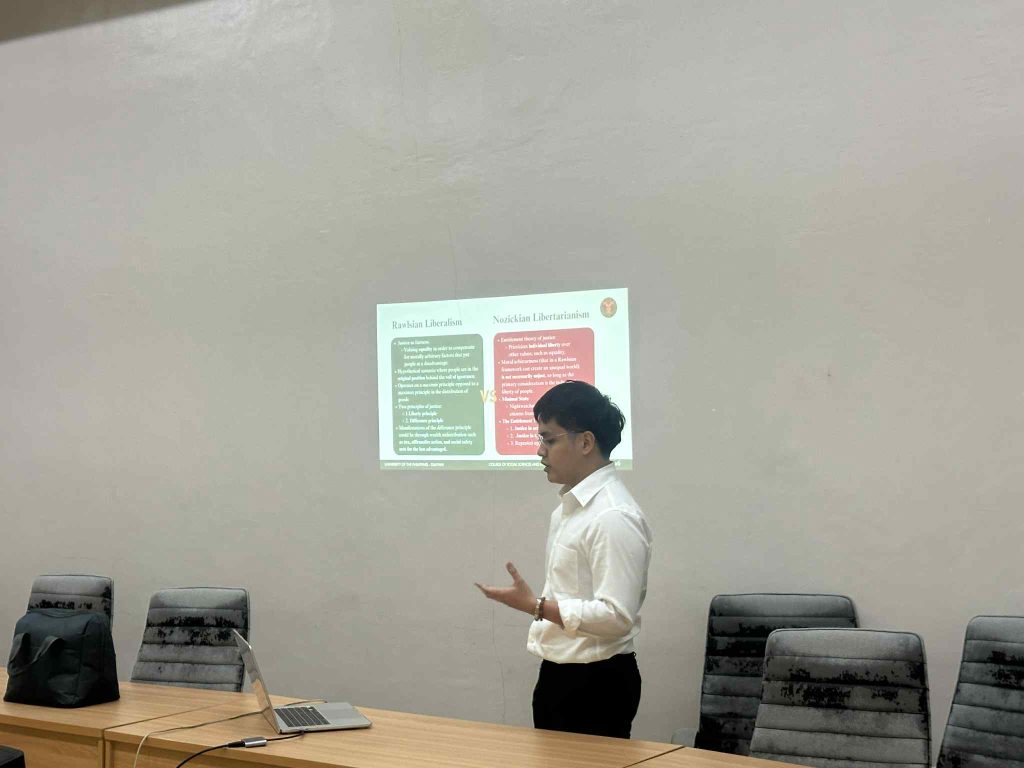
Junno defending his thesis entitled “The Distribution of Opportunities and Resources Through AI Algorithms: A Comparative Analysis of Rawlsian Liberalism vs. Nozickian Libertarianism Frameworks.”
Legal systems themselves are subject to further analysis. One of my most important lessons from philosophy comes from a disillusionment of the concept of law. Judges’ decisions can be, as J.L. Austin coins, performative utterances, disguised as something purely objective while hiding their true subjective and biased nature (Hilbay, 2010). It was then wherein my initial perspective on law totally changed. We can indeed classify law as an oppressive tool, if used to hide biased intentions. Legal decisions reflect further the psychology, sociology, and politics in the court room. ‘Guilty’ or ‘not guilty’ become utterances when the facts don’t tell a definitive story. By then, judges make the decision that is totally subjective to their own understanding and biases. This is an important lesson for an upcoming law student. The tedious readings a law student will go through is not in fact outside of further philosophical investigation.
Law and Ethics
Ethics was one of my favorite subjects simply because of the case studies that we analyzed. Here, I am not yet talking about the relationship between law and ethics, just ethical cases that are conventionally analyzed in a philosophy class (e.g. trolley problem, mind fission, etc.). These are interesting to me because when you really think about it, you get to analyze from all perspectives. One of my favorite cases was Bernard Williams’ body swapping thought experiment. If two people swap minds and one was to be tortured, is the tortured body the one more affected? Or is it the tortured mind? Both perspectives should be taken into account.
What does this have to do with law? If I were a lawmaker, lawyer, or an adjudicator of law, would I not want to also know the ethical implications of my decisions to all sides and perspectives? This is the most important lesson that ethics has taught me, and I find it extremely helpful as an incoming law student. We cannot make ethical decisions that only benefit one side, all sides need to be taken into account especially if we are debating human rights and distributive justice. Through these lenses, we are able to see that law and ethics are indeed connected. I can even say that those who make decisions regarding law should have classes in ethics so that they know the ethical implications of their decisions.
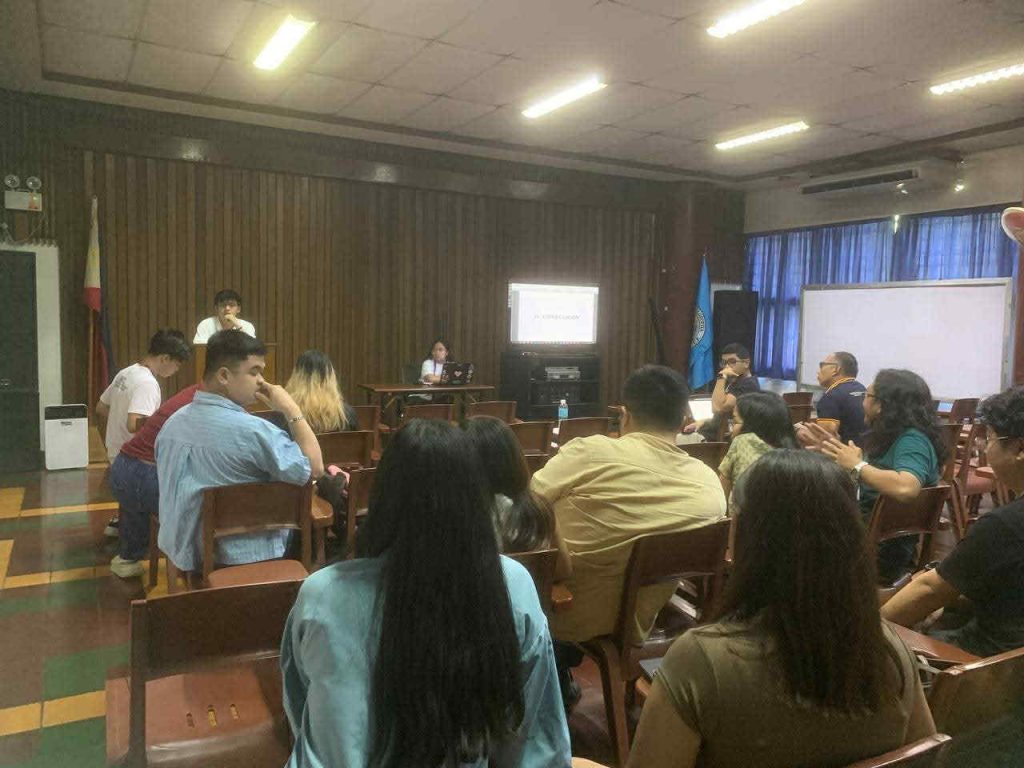
Junno presenting his paper on whether we have moral obligations to future generations at Durungawan: The CSSP Undergraduate Conference 2024.
What of the tools needed for law school?
To the eager undergraduate who has plans to get into law school, the common perception to Philosophy seems appealing enough, but let me start by saying that any course in UP may already provide these said skills. University students are inculcated through the university wide “GE subjects” that instill in students these said skills. Philo 1 in itself is an introduction of what we study in Philosophy, and is enough to learn basic logic and critical reasoning skills. The vast amount of materials used in Soc Sci 1 and Eng 13 are more than enough to establish a wide knowledge about societal problems and greatly improve higher reading comprehension levels. Speech 30 trains the students to be orators that can clearly and coherently organize and speak their thoughts. I owe much of my skills to these said GE subjects, to which I used in my law school applications and exams. I will no doubt use the skills from these subjects in my challenges in law school.
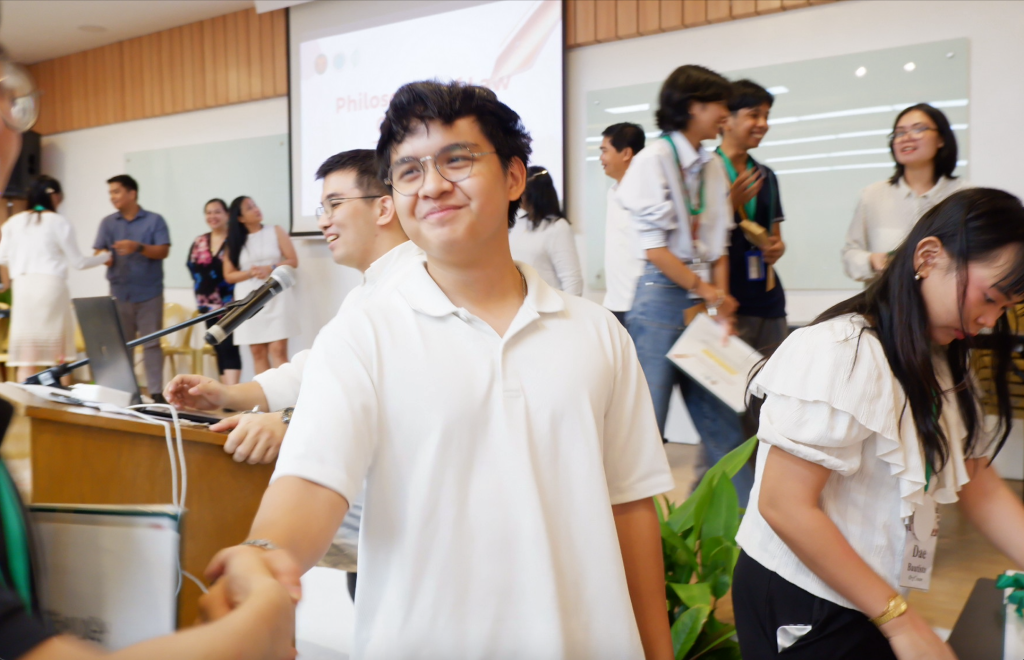
Junno at the Emmanuel Q. Fernando Philosophy Undergraduate Conference 2025, of which he was among the organizers.
Though, I must say that four years in philosophy does indeed take these skills to another level. We take more logic classes (Philo 12, Philo 104) that are for more intermediate and advanced logicians. The hundreds to thousands of case studies that we tackled in bioethics, political philosophy, philosophy of law, and etc. exercise the critical reasoning skills. The thousands of pages given to us to read Plato, Russell, Descartes, and more are enough to improve our reading comprehension skills. You will read from different styles of writing from different times. Lastly, the teachers encourage active participation through Socratic dialogue, through which some of my favorite professors, Sir Henry Fernando and Sir Ato Manaloto, asked a lot of interesting questions in class.
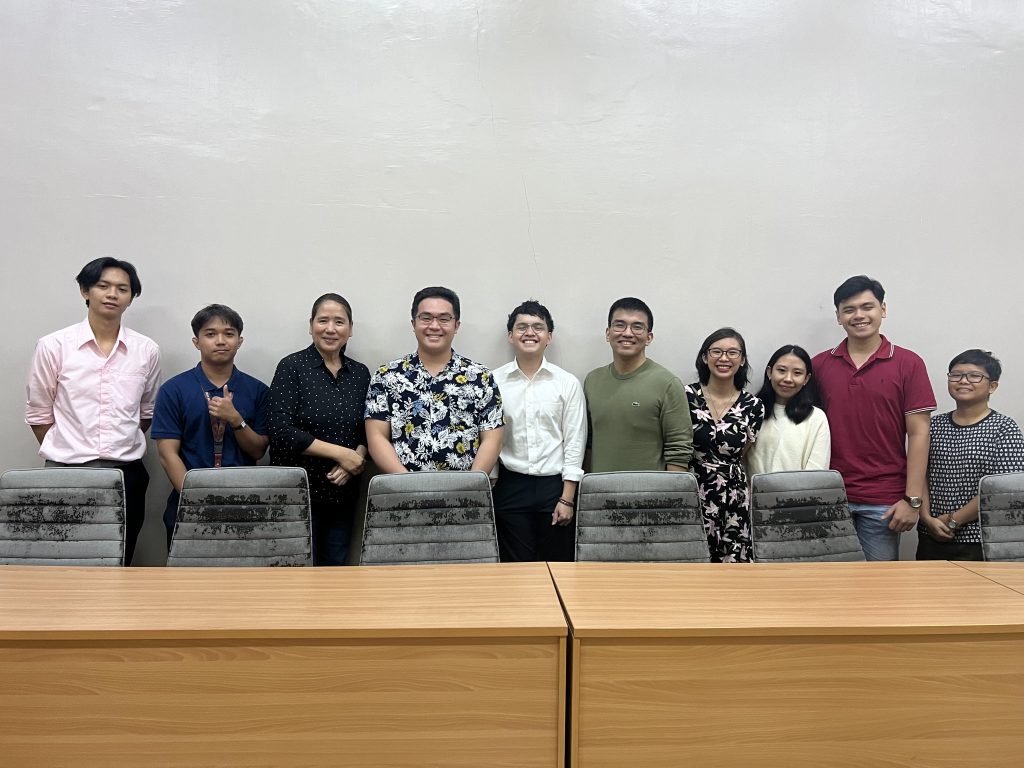
Junno (5th from the left) poses with his Philo 199 (Senior Thesis) class after a successful thesis defense. They are joined by their adviser Prof. Ma. Theresa Payongayong, PhD (3rd from the left), Instr. John Alonzo (4th from the left), and Asst. Prof. Henry Fernando (6th from the left).
About the Author
Junno Alfonsus M. Salvanera is a graduating BA Philosophy major who has attained magna cum laude honors. He will be an incoming freshman at the UP College of Law for AY 2025-2026. He also served the department as Project Head for the UPD-Cambridge Lecture Series 2025.
“The Logician’s Manifesto: Applications and Possibilities in Logic” by Ron Victor Sarmiento
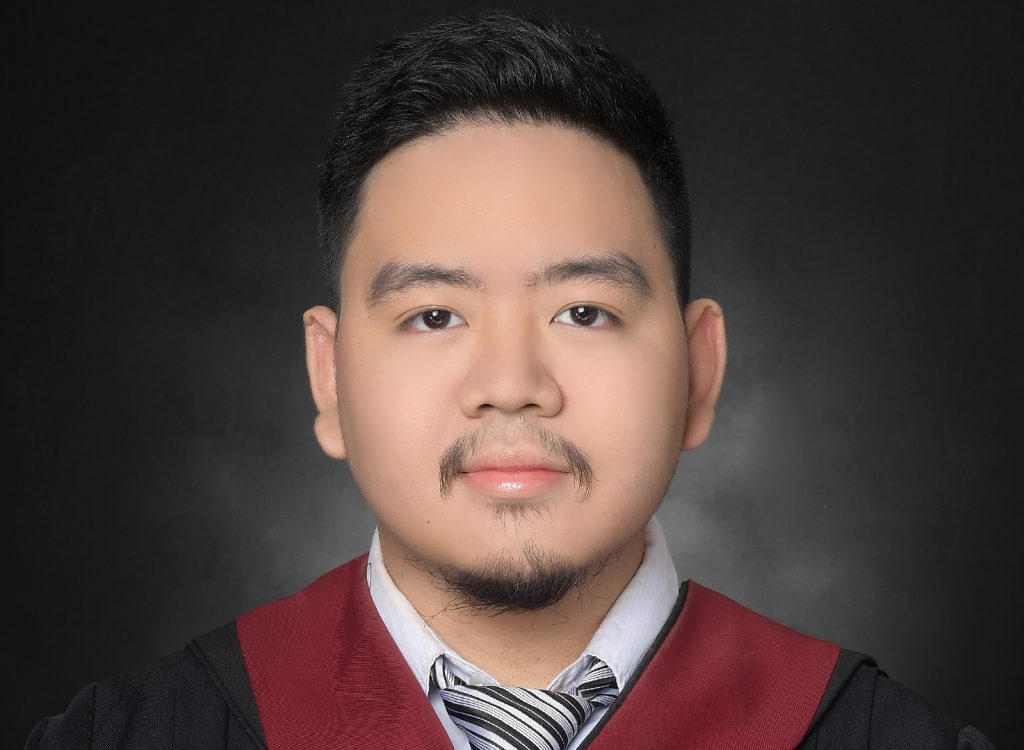
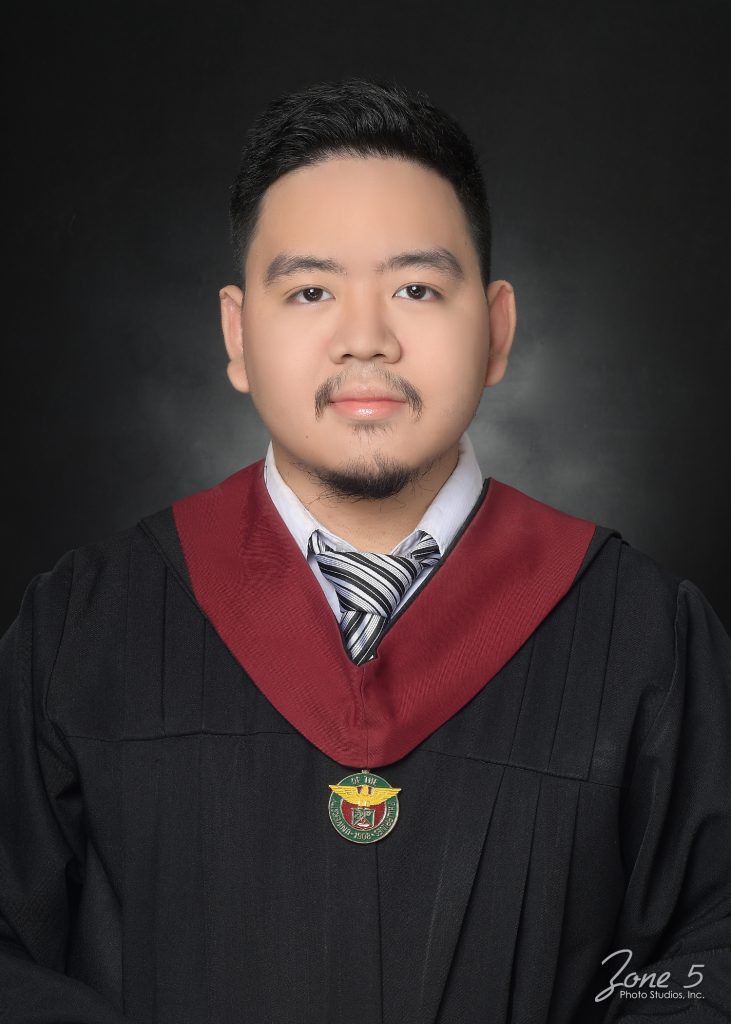
Consider the following discussion:
A: With the prices of goods increasing, I feel kind of guilty buying things I don’t necessarily need. Do you think it’s morally responsible for me to buy an electric car? It’s not perfect, but on the long run it is much greener and eco-friendly than traditional vehicles.
B: I think no person bears the moral responsibility of fixing climate change through their individual consumer choices alone. Rather, I think it’s better to address climate change through the lens of collective responsibility.
While B’s point seems like a perfectly valid and defensible position on its own, the sharp reader might have already noticed something off. We might ask: Did B actually answer A’s original question?
Be attentive of the language being used here. A asks whether an action is “morally responsible”, while B responds that we have no “moral responsibility” to do the action. A subtle but significant sleight-of-hand has occurred. To rephrase in more exact terms: A is asking whether the action is morally permissible or allowed. B responds by saying the action is not morally obligatory or required, which doesn’t answer A’s question at all; some things are permissible without being obligatory.
This hypothetical conversation is a modified version of a real exchange that happened in the philosophy department’s very first Ethics Bowl (a.k.a. the fun, less adversarial cousin of the debate) last May 2025.
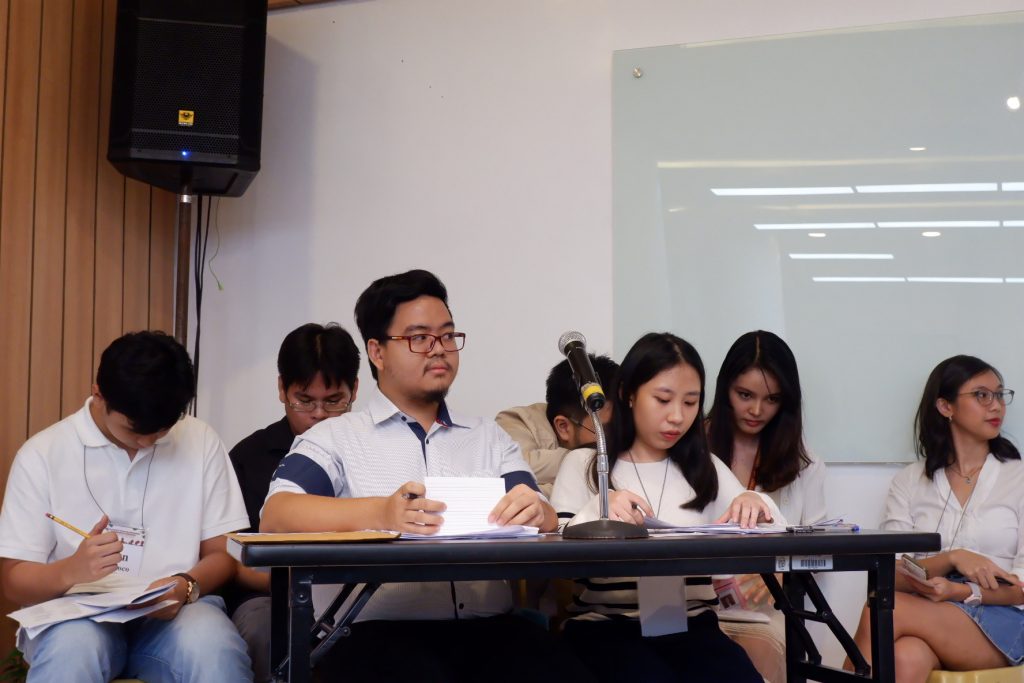
A photo of the Seniors team, the Champion of the Ethics Bowl 2025. My primary role was to respond to the opposing team’s speeches and critically unpack them in detail. From left to right: Jan Estioco, Ron Imperial, Ron Victor Sarmiento, Justin Felip Daduya (Co-Captain), Sofia Luna, Colene Santos, and Pia Cruz (Team Captain).
I was the one who raised the point regarding the subtle difference between “responsible” and “responsibility”, which I was only able to do due to my deep familiarity with deontic modal logic (i.e. the logic of obligations and permissions). It was a huge insight that likely contributed to our team’s win.
Of course, if you want to understand higher-level logic like this one, you need to work on your basics and fundamentals, which will be drilled into you by the department. Let me paint you a picture of my journey through logic (and philosophy in general) as a philosophy major.
People who know me nowadays humorously call me “Logic God” (a title that, while slightly cringe, is also a title I proudly earned through blood and tears), but I didn’t always start this way. Philosophy wasn’t even my first, second, or last choice. I was planning on taking a medicine-related degree after taking the STEM strand, but I was remarkably average in the sciences and thus didn’t have the requisite grades to enter the in-demand science programs. I took Philosophy on a whim, planning to shift to my desired courses if I didn’t like it. It turns out that my true calling was in the humanities; I fell in love with philosophy and became incredibly proficient with it.
My first introduction to logic was through a Philo 11 class with Sir Agerico De Villa. Because it was a midyear class, we had logic exercises every day, which made it seem like a “logic bootcamp” that solidified my grasp on the fundamentals. The spark of interest grew into a flame as I took higher-level logic classes by Sir Gerald Pio Franco (i.e. the lifeblood of my journey as a logician). I once even presented my own logic system in a World Logic Day conference.
My experience, of course, is not universal. A lot of people may find logic to be difficult, with some even joking that it’s the “philosopher’s math.” However, in my experience tutoring various people on logic, once they grasp the fundamentals, the difficulty curve typically mellows out a lot. In my opinion, logic is equally a fun game of pattern recognition as it is a strict formal calculus.
Funnily enough, logic gave me the opportunity to befriend a lot of people. Fellow philosophy majors are comfortable approaching me to ask for help, which I happily provide. The stereotype of the logician as a stuck-up loner is thankfully not true in my case.
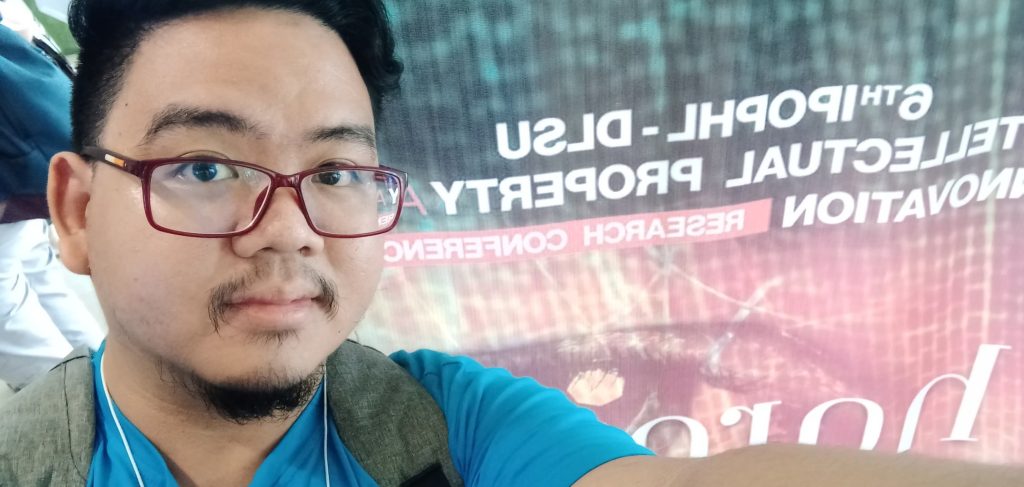
A photo I took before presenting my paper, “The Historical and Philosophical Roots of Copyright and Its Implications on Artificial Intelligence” at the 6th IPOPHL-DLSU Intellectual Property and Innovation Research Conference.
Anyways, like my example earlier, logic is applicable to so many domains, especially in philosophy. All of our class readings in philosophy are, explicitly or not, structured as arguments or demonstrations to show the author’s point. Logic trains you to analyze and dissect arguments into their moving parts to see how they tick. You become sensitive to key distinctions that ordinarily would slip by you. From ethics to epistemology to metaphysics: you will never run out of things to logically analyze.
Even if you’re not planning on going to law school or becoming a mathematician, logic is still relevant in your everyday life. Something as mundane as sudoku puzzles or as intense as political disagreements could use the structure that logic provides. Moreover, in an epistemic era of post-truth, having a critical, logical eye for detail has become increasingly more relevant.
However, I am not a snake oil salesman. Logic is not a perfect cure-all for all the epistemic ills of our society. At its core, logic is the study of relations of truth preservation. What this means is that a logician can ensure that IF your premises are true, THEN your conclusion has to be true as well. Whether or not the premises are true in the first place is the job of the scientist, mathematician, or philosopher to figure out.
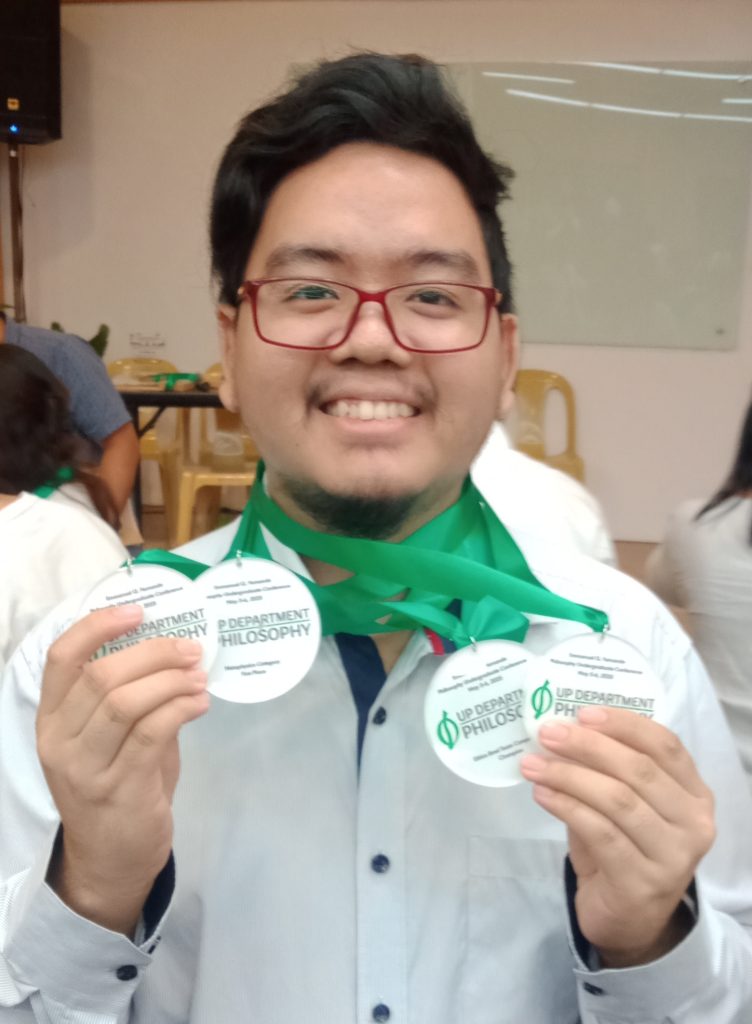
A photo of me wearing the four medals I earned in the Emmanuel Q. Fernando Undergraduate Philosophy Conference 2025: Best Paper (Metaphysics), Best Oral Presentation (Metaphysics), Ethics Bowl (1st Place), and Quiz Bee (2nd Place).
Lastly, I will tell you the reason I got hooked into logic in the first place: it’s still an open, developing field. When we get taught math or logic in school, it’s typically depicted as if these are “eternal truths” dropped from above; thus, a common misconception is that math and logic are “complete” sciences.
Similar to how learning about non-Euclidean geometries opens up your mind about the vast possibilities of mathematics, learning about non-classical logics elicits the same reaction. You would even find that some principles you’ve taken for granted in your Introduction to Logic have stopped being true in more sophisticated logics!
Consider the Law of Excluded Middle: either a proposition P or its negation is true. This means that every proposition is forced to be either true or false only. However, how do we handle future states (e.g. It will rain tomorrow) with indeterminate truth values? While classical logic cannot handle them, logics like intuitionistic logic allow for propositions that are neither true nor false.
If you have a basic familiarity of logic and I’ve succeeded in tickling your interest, I highly recommend looking into the following topics:
- The paradoxes of material implication;
- Paraconsistent logics;
- Fuzzy logics, where values are the real number spectrum between 0 (false) and 1 (true);
- Buddhist logics (with 5 truth values: true, false, neither, both, ineffable)
- Varieties of modal logic (deontic, epistemic, temporal, etc.)
I cannot stress enough how much this excited me. Seemingly “eternal” laws turned out to be contestable. The domains of logical analysis keep on expanding. Logic is a creative, open frontier of curiosities waiting for future logicians like you to uncover their mysteries. I hope I have succeeded in imparting both the utility and excitement to be found in learning logic.
About the Author
Ron Victor Sarmiento is a graduating BA Philosophy student from the University of the Philippines Diliman. He is an active researcher with at least 16 conference presentations and 5 research awards within his undergraduate years. He is an alumnus of UP Kabataang Pilosopo Tasyo, a socio-academic organization dedicated to the development of Filipino Philosophy. His research interests include logic, epistemology, fictionality, aesthetics, AI studies, post-truth, among many others.
His conference presentations are as follows:
- Emmanuel Q. Fernando Philosophy Undergraduate Conference (May 2025): “Voltolini Redux: Reassessing Some Desiderata on the Metaphysics of Fictional Entities”
- 2nd Dasmariñas Research Congress (April 2025): “Post-Irony and Artificial intelligence: Reflections on Post-Truth”
- 2nd Mayon Undergraduate Philosophy Conference – International (April 2025): “Tracing Track Changes: Guillermo Tolentino and Occult Baybayin”
- 6th IPOPHL-DLSU Research Conference on Intellectual Property and Innovation (April 2025): “The Historical and Philosophical Roots of Copyright and Its Implications on Artificial Intelligence”
- Durungawan: CSSP Undergraduate Conference (April 2025): “The Manosphere and Malformed Feminisms: Analyzing the Decline of Feminism in Public Consciousness”
- 18th DLSU Arts Congress (February 2025): “Creativity, Intentionality, and Artificial Intelligence: A Critique of Boden’s Computational Model of Creativity”
- Ramon Castillo Reyes Conference (September 2024): “The Liquid Heart: How AI Epistemology Affects AI Ethics”
- John Paul II Conference (God and the World) (June 2024): “Self-Referentiality and the Paraconsistent Logic of God-Talk”
- Philosophy, Communication, and Culture Conference (May 2024): “The Logic of Post-Truth: The Limits of AI and Computationalism”
- Durungawan: CSSP Undergraduate Conference (April 2024): “The Filipino in Filipino Philosophy: A Discourse on Indigenization”
- 9th DLSU Undergraduate Philosophy Research Conference (March 2024): “Hyperintensional Ethics: Blunting the Hume-Moore Arguments”
- 8th DLSU Undergraduate Philosophy Research Conference (March 2023): “On the Limitations of the Truth-Functional Account: A Critical Review of Claro Ceniza’s Material Implication and Entailment”
- 7th DLSU Undergraduate Philosophy Research Conference (June 2022): “Voltolini’s Contradictory Desiderata: Reconsidering Some Intuitions about Fictional Entities”
- World Logic Day Writeshop (January 2021): “Cookie-Cutter Sets”
- 2nd Promethean Paper Conference (December 2020): “Foundations of a Modifier Logic”
- 5th DLSU Undergraduate Philosophy Research Conference (September 2020): “Philosophical Infrastructure: A Proposal for the Development of Filipino Philosophy”
“Heeding the Call to the Intellectual Vocation” by Ron Joshua L. Imperial
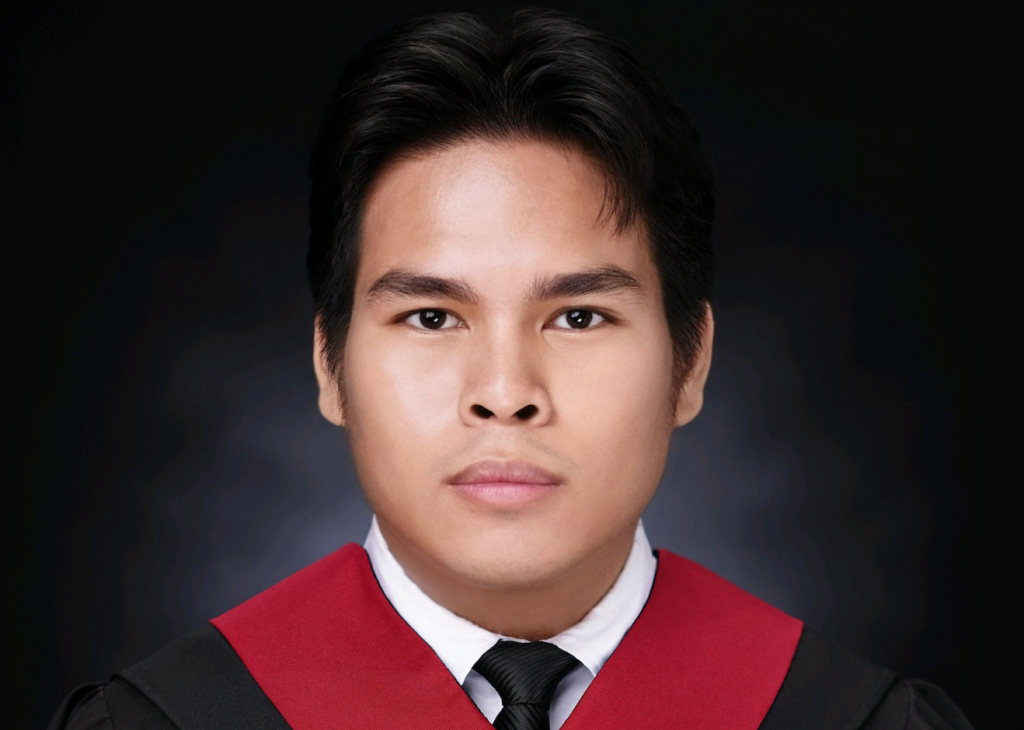
Ron presenting at the Emmanuel Q. Fernando Philosophy Undergraduate Research Conference, where he was awarded 1st place in the Ethics category.
CLIMBING A LADDER
Admittedly, philosophy was my second degree program choice at UP Diliman in the 2021 UP College Admission. Political science was the first, history the third, and English studies the fourth. All I wanted was a humanities and social science-related pre-law undergraduate degree, and it is a hackneyed but valid view that political science is one of the best pre-law majors. Nevertheless, philosophy from the leading university in the country, I thought, would suffice—but it has now become necessary.
I discovered that I was not really interested in the empirical study of politics, but in the very assumptions that underlie politics—why and ought the state consider the natural rights of its citizens, are there even natural rights, is democracy even the best form of government, what connects the descriptive nature of the state to the normative values or duties we attach to it? I would also soon question even the assumptions that underpin empirical study or any form of science—including the heated debate whether political science and other social sciences are real science like the natural sciences (and this cannot be resolved by science for as Aquinas would put it, fire cannot set itself on fire). Although history will always fascinate me, I realize that I am more interested not in how schools of thought change the world but in the thoughts themselves. And while I have always been a bookworm, it turns out that my interest in language is more about the very nature of meaning and truth that transcends particular languages.
A PREMIER ANALYTIC DEPARTMENT
When I was admitted to the BA Philosophy program of the University, I did not have sufficient understanding of the discipline. Although I took “Introduction to the Philosophy of the Human Person” during senior high school, it was not enough to make a life-altering choice. I was not even aware that by choosing the UP Department of Philosophy, I was choosing to be trained under the analytic tradition, the definition of which I had yet to comprehend—nor did I know that Ateneo follows phenomenology, UST follows scholasticism and other continental schools, and so on.
According to a 2020 demographic survey by PhilPapers, about 78.4% of respondents (students, academics, and independent researchers, among others) self-identify with the analytic tradition, 9.3% with other traditions, 6.2% with various continental schools, and 1.0% with both analytic and continental, among others. While these figures can be criticized—given that the majority of respondents were from the US, UK, and Canada, where the analytic tradition historically thrived—one may point out, nonetheless, that a large number of philosophy departments from the world’s most prestigious universities (Oxford, Cambridge, Harvard, etc…) and the majority of the most well-regarded philosophy journals (Mind, The Philosophical Review, Noûs, etc…) strongly or mostly adheres with the analytic tradition. But the local scene breathes a different air.
 Three graduating philosophy students aspiring to enter academia, seeking advice from Asst. Prof. Symel de Guzman-Daulat (center) during PAGLULUNSAD: BA Philosophy Batch 2025 Send-off (from left to right: Justin Daduya, Ron Sarmiento, and Ron Imperial).
Three graduating philosophy students aspiring to enter academia, seeking advice from Asst. Prof. Symel de Guzman-Daulat (center) during PAGLULUNSAD: BA Philosophy Batch 2025 Send-off (from left to right: Justin Daduya, Ron Sarmiento, and Ron Imperial).
I can still vividly remember the time I presented a paper at a particular university in the country. A section called for a brief citation of Gottlob Frege and some relatively simple logical symbolism, to which I blame my suspicion on why the audience did not ask me any questions (other than a pahabol, maybe even pity, general query from the host about a few minutes before our panel ended) because of which I also suspect that they did not even comprehend or appreciate my paper. I guess studying philosophy at UP makes you somewhat special.
Unlike other philosophy departments (perhaps except for that of De La Salle University), the classical syllogistic logic from antiquity is nothing but a short review and a preliminary introduction to logic here. Who needs the square of opposition when you can easily find more precise logical equivalences through some quantification rules? The meat of the syllabus is dedicated to the newer symbolic logic—a stepping stone toward some elective undergraduate classes, perhaps uniquely offered at UP (modal logic and mathematical logic), and even particular research interests you may develop (deontic logic, Kurt Gödel’s ontological proof of God, David Lewis’ revitalization of a uniquely analytic metaphysics through possible worlds semantics, Peter Geach’s Frege-Geach problem in metaethics, and Bertrand Russell and A.N. Whitehead’s infamous almost 400-page proof for “1+1=2”). There is no better place to carry on this intellectual legacy in the Philippines than here, where it has taken root locally.
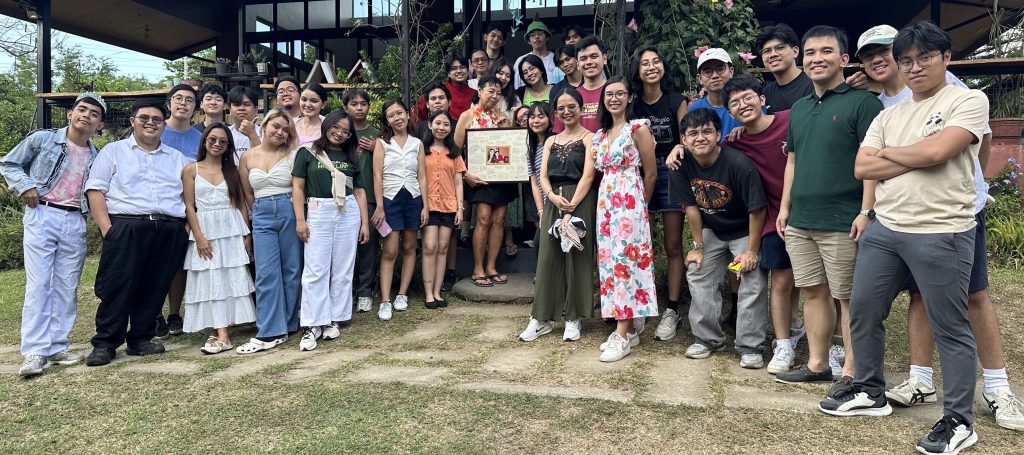
Batch photo with Asst. Prof. Symel de Guzman-Daulat, Asst. Prof. Enrique Benjamin Fernando III, and Ma’am Winnie Bonifacio (center), taken during PAGLULUNSAD: BA Philosophy Batch 2025 Send-off.
But I would be lying if I said that I, from years ago, would not find these sh*ts dry and soulless—possibly the same impression of my conference audience to me and of the rest of the philosophy scholars in the Philippines to our department. There is a reason why, despite the scholarly dominance of the analytic school, the continental schools remain more popular in the Zeitgeist outside the academe, so much so that when an average person is asked what philosophy is, they will probably think about the meaning of life or similar continental lines of thought. But this is a confused impression. For even Iris Murdoch found no essential differences between A.J. Ayer and Jean-Paul Sartre—both are wicked, she suggests. But in a more positive note—having had the pleasure of listening to Ma’am Winnie Bonifacio’s (BA Philo 1976, MA Philo 1978) stories and life lessons from herself and her husband, the late Sir Armando “Boni” Bonifacio (a prolific Filipino analytic philosopher and a former chair of the department), during our batch send-off—I see no logical contradiction in devoting my life to philosophy.
BACK TO THE ROUGH GROUND!
I can recount when Prof. Ma. Liza Ruth Ocampo, my undergraduate thesis adviser, made our class read Antonin Sertillanges’ The Intellectual Life in preparation for our research. The most important thing I learned from it is that while the intellect may be driven by a voracious appetite for knowledge, the body must still know its limits. With this in mind, I tempered and refined my newfound excitement, realizing that Elizabeth Anscombe is my philosopher as much as she also found Ludwig Wittgenstein to be hers, towards finalizing my thesis: Philosophy of Action as a Metaethical Critique: A Reiteration of G.E.M. Anscombe’s First Thesis in “Modern Moral Philosophy.”
However, such restrictions, though rooted in intellectual humility, modesty, and excellence, left further questions unanswered—questions for which my curiosity still yearns. The book is a joyous trap. The intellectual life is a vocation that cannot be ended abruptly or in any way; to do so is to commit intellectual suicide.

Class photo with some of Prof. Ma. Liza Ruth Ocampo’s thesis advisees (Prof. Ocampo, back right). Apparently, we also all decided to wear eyeglasses.
If asked which part of my thesis is my favorite, I would immediately point to the very first paragraph:
“Immanuel Kant once wrote that David Hume interrupted him from his dogmatic slumber. It is now my turn to profess that I have been woken up too from dogmatic slumber—but from Kant. Not only that, I am saved from Hume’s sophistry as well. This is all thanks to Gertrude Elizabeth Margaret Anscombe.”
And it is indeed difficult to sleep again.
My initial motivation for presenting at my first conference when I was a junior was simply an incentive to Asst. Prof. Enrique Benjamin Fernando’s social and political philosophy class. I had no worthy paper at disposal, and so I pulled about 20 pages of thoughts from my head over a week before the abstract submission deadline. It has become more than a habit since then. And unbeknownst to many, I even had two papers, written in my slumber, accepted for publication in two journals. But I could no longer agree with my own arguments and their very presuppositions, and so I withdrew. But patience for growth does pay off. As of writing, I am preparing my paper presentation for the Pre-Doctoral Wartime Quartet Conference 2025 at the University of Cambridge in late June. I hope to continue such excellence as I pursue my Master of Arts in Philosophy this coming academic year at the same institution that has witnessed the development of my philosophical maturity.
I once believed I had reached the final rung—that philosophy had served its purpose, and I could now let it go. I even passed the UP Law Aptitude Examination. But there are more things to do, more things to unravel—and they are all down here.
“I might say: if the place I want to reach could only be climbed up to by a ladder, I would give up trying to get there. For the place to which I really have to go is one that I must actually be at already.
Anything that can be reached with a ladder does not interest me.”
-Ludwig Wittgenstein, Culture and Value, p. 10c.
ABOUT THE AUTHOR
Ron Joshua Imperial is a graduating BA Philosophy student and a summa cum laude candidate at UP Diliman. He will be pursuing an MA in Philosophy at the same university beginning AY 2025-2026. He held various editorial positions at SINAG, the official student publication of UP Diliman College of Social Sciences and Philosophy. He was also a member of UP Student Catholic Action and UP Writers Club.
“Life as a BA Philosophy Student-Athlete” by Tristan Yu
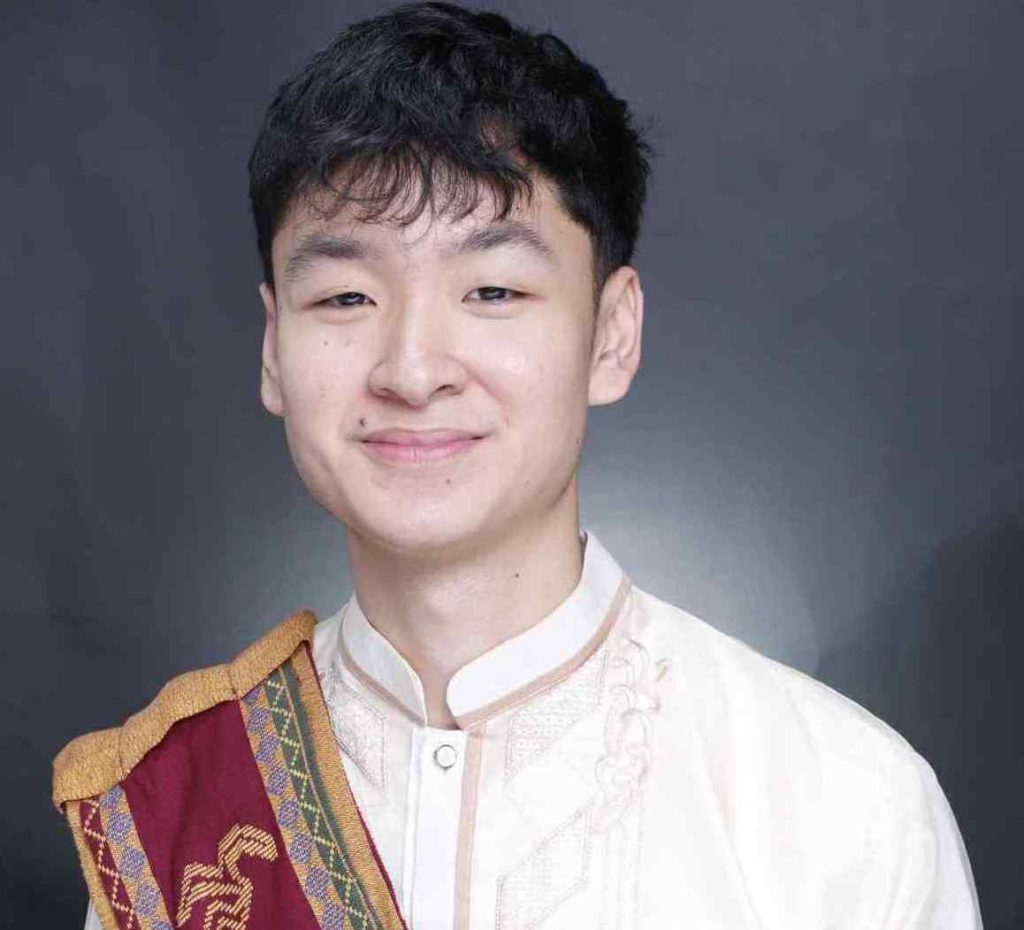
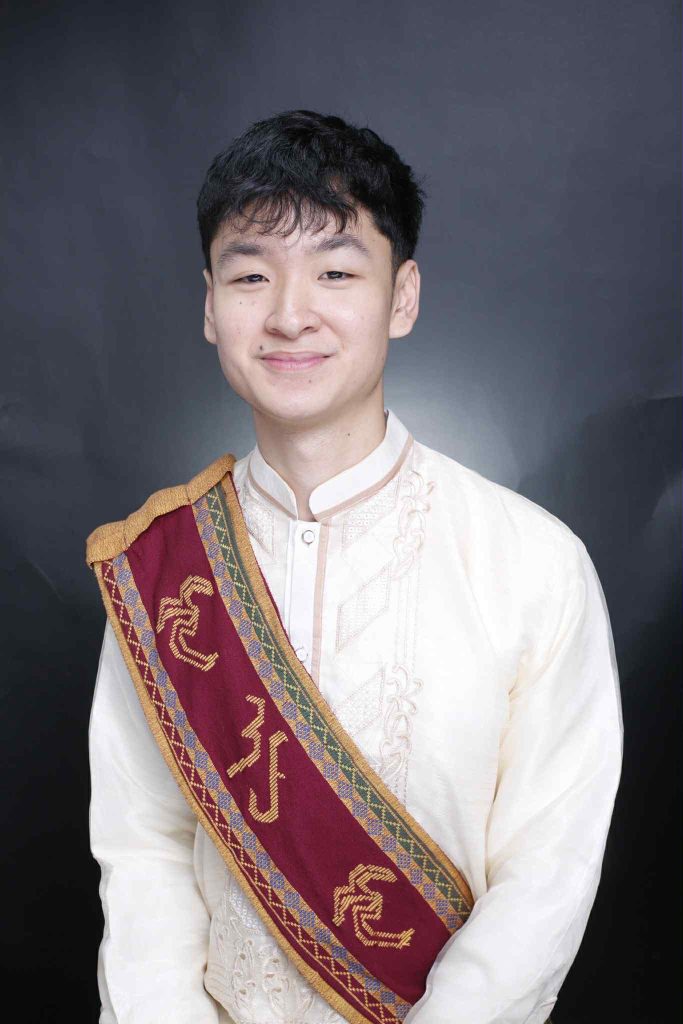
Tristan will be graduating with cum laude Latin honors this coming July.
First and foremost, I’m incredibly grateful for the rare opportunity to pursue the sport I love at the highest level of competition in the Philippines, all while studying at my dream school—the alma mater of both my mother and father. The journey hasn’t been easy, but looking back, it has been deeply fulfilling. It’s a chapter in my life where I’ve discovered so much about who I am and how far I can push my own boundaries.
Being a student-athlete, especially at UP, required a major adjustment. Waking up as early as 5 a.m. for training, then transitioning into classes and extracurriculars, became part of my everyday reality. On the field, I competed alongside some of the country’s best baseball players—athletes who brought intensity, drive, and discipline to every session. In the classroom, I was surrounded by some of the sharpest minds I’ve ever encountered, grappling with complex philosophical ideas and abstract theories. The contrast and overlap between those two worlds—physical rigor and intellectual challenge—motivated me to grow in ways I never imagined possible.
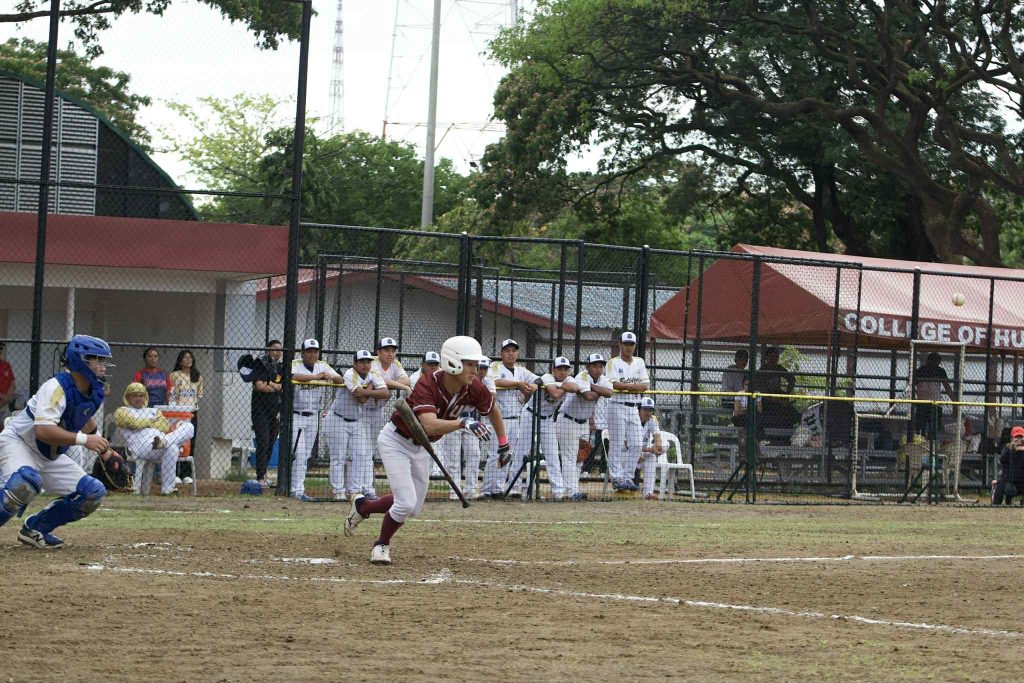
I’d be lying if I said I never felt like giving up. There were days when the exhaustion was overwhelming, when the sport felt unforgiving, and when hours of effort didn’t seem to yield any results. But in the midst of all the chaos—balancing games, training, papers, and readings—I found a strange sense of clarity and purpose. Somewhere between the baseball diamond and the philosophy classroom, I learned to embrace discipline, resilience, and reflection. Many of my most memorable moments in college were spent competing in the field, and I think that the values I have learned in the field and as a team player will one day materialize in how I am as a professional.
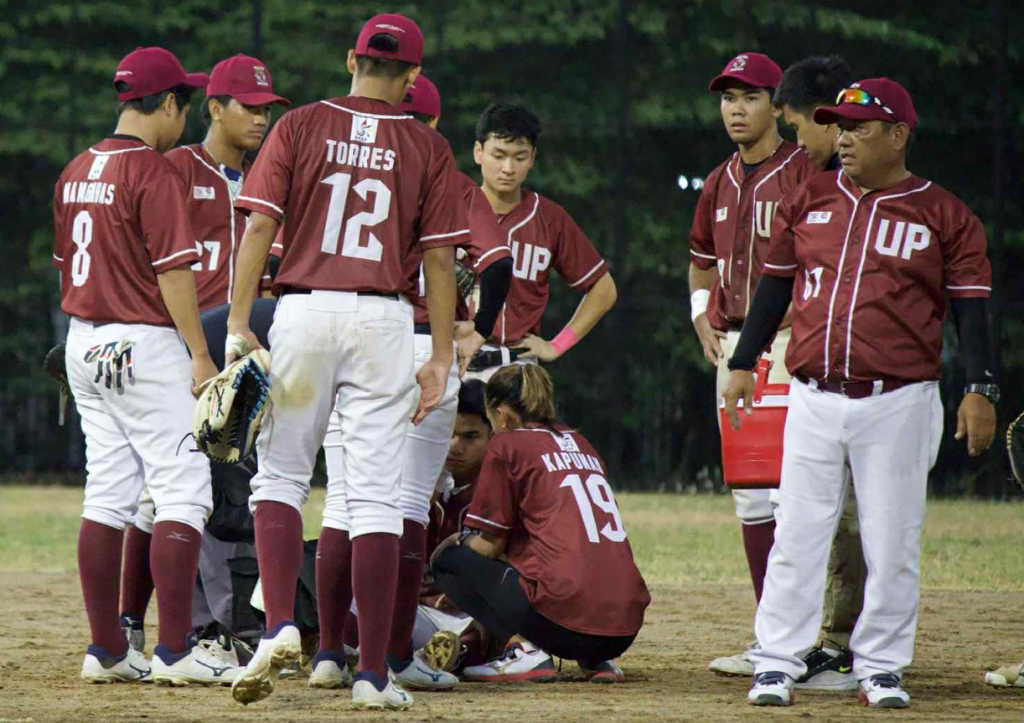
Tristan together with the UP Baseball team in a huddle during a regular season game.
How was I able to adjust to this kind of lifestyle?
Being a student-athlete in the Philosophy Department was, surprisingly, quite manageable for the most part. With a regular load of 15–18 units per semester, I was able to balance academics and training fairly well. It was only during the competitive season, when I had to miss about a day of class each week for over a month, that things got particularly hectic. Still, my professors were incredibly understanding, and their support made a huge difference.
One of the biggest factors that helped me grow and thrive as a student-athlete was the unwavering support of my parents. They’ve always cared deeply about my development—not just academically, but holistically. They emphasized the importance of becoming a well-rounded individual through sports, extracurriculars, and social life. Their constant presence, both emotionally and physically (they never missed a game despite the distance), gave me the grounding and encouragement I needed to keep going, especially during tough times.
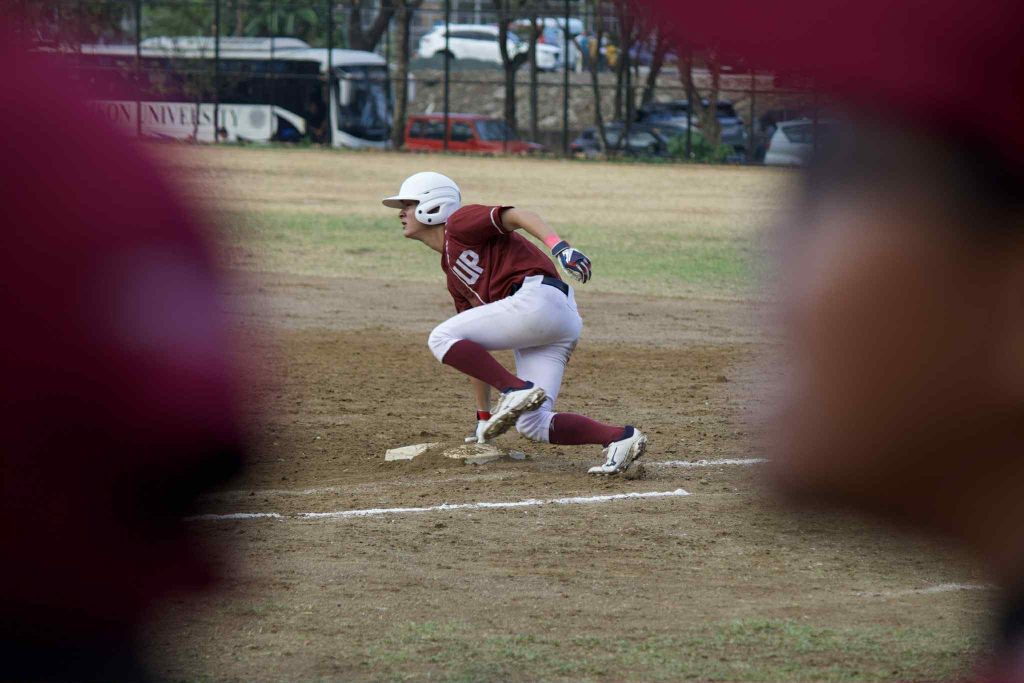
I also owe a lot to my peers. There’s that saying, you are the average of the five people you spend the most time with, and I was lucky—my closest friends were some of the most dedicated and disciplined student-athletes I knew. Whether it was swimming, football, or basketball, they were always grinding in their own ways. Bumping into each other during early morning trainings, half-awake but motivated, created a shared sense of drive. That quiet camaraderie helped raise the standards I set for myself.

A portrait drawing of Tristan from a member of the audience. Credentials to little_purple.s_arts on instagram.
Looking back, what kept me going was maintaining a positive and grounded mindset. Life as a student-athlete is full of discipline, sacrifice, and emotional highs and lows. You’re not always going to win. You’re not always going to be the best. But you learn to take the good with the bad, to stay patient and persevere even when things don’t immediately work out.
At first, I struggled with finding meaning. I was working year-round, pushing myself to the limit, yet often playing a supporting role. It felt like I was sacrificing so much during a pivotal period of my life—when others were exploring their freedom—just to sit on the bench. But I kept showing up. And eventually, during my second playing year, I got my break and made the starting lineup.
I’ll never forget that moment. I messaged my family and friends to watch my first start—and I played the best game of my life. When I got home, I cried. Not out of exhaustion, but joy. I thanked God. All the doubt, anxiety, and questions about whether it was worth it—they melted away. In that brief, beautiful moment, I found a sense of purpose that made every sacrifice feel worth it.
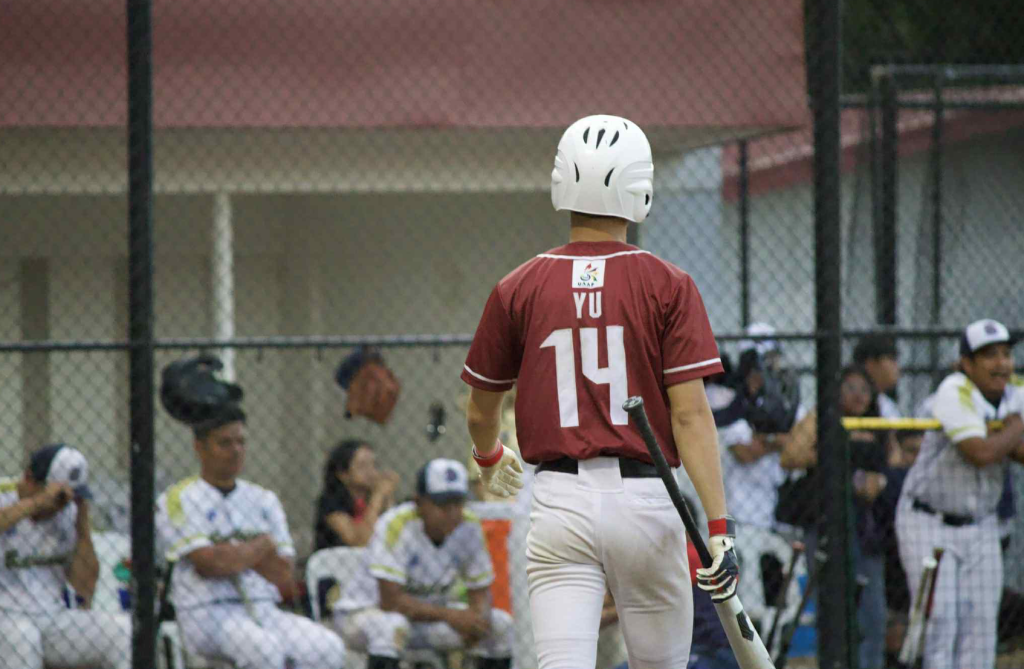
While I graduate and say goodbye to both the sport I love and the classrooms in which I studied Philosophy, I will forever be grateful for all the lessons learned and how it all collectively shaped me to become the person I am today. These memories and the people I spent them with I will cherish for the rest of my life and I will look back at this period of my life with only fondness.
ABOUT THE AUTHOR
Tristan Yu is a BA Philosophy undergraduate senior from UP Diliman running for cum laude. He is an active player for the UP baseball team and an active member of the Upsilon Sigma Phi Fraternity.
“Balancing Both Worlds: The Life of a Working BA Philosophy Student” by Colene Anne R. Santos
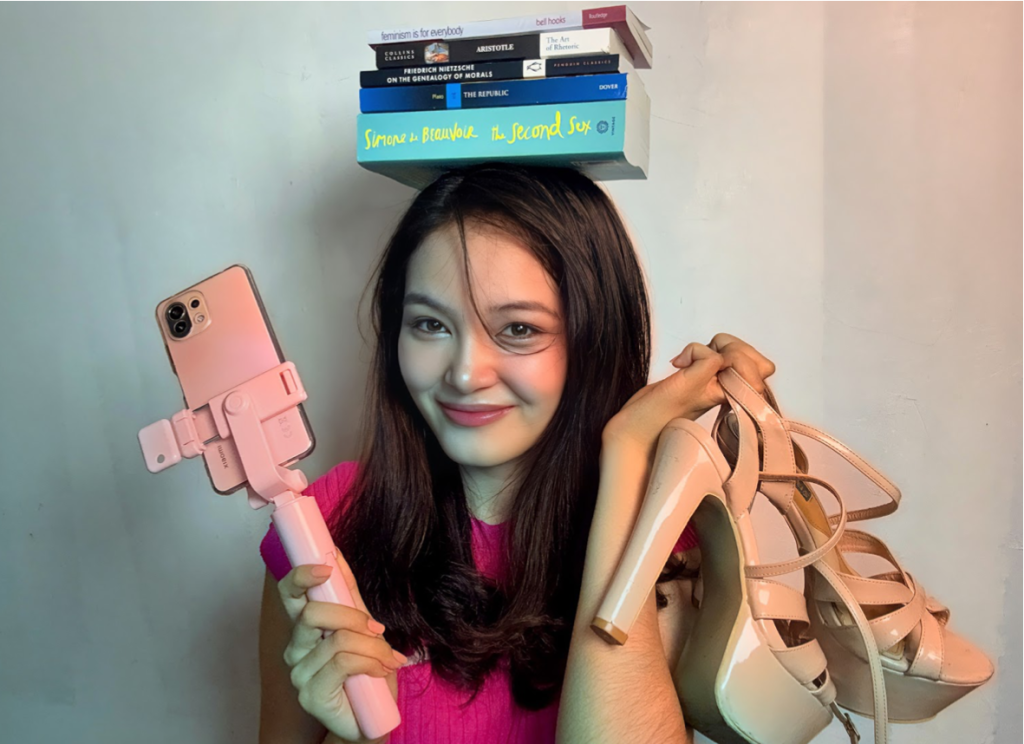

Working as a full-time student is challenging in itself—but being a working student majoring in philosophy at UP Diliman is a different experience altogether. The type of work that I do is freelancing. It usually involves various sidelines like selling different merchandise, making video contents, liveselling, modelling gigs, and many more. Juggling both work and philosophy has its pros and cons, yet both provided me with indispensable lessons that surely helped in meaningful ways.
With the maximum load of 15-18 units per semester, working while studying philosophy has been fairly manageable for me. I do not follow a strict daily itinerary—given that my job is not fixed—but I make sure to complete both academic and work-related outputs on time. Typically, my mornings and afternoons are dedicated to studying while my evenings are reserved for work. Sometimes, I end up squeezing in work tasks during study hours; the key is to maximize your time efficiently.
One significant moment stood out: I had to skip a class for an important modeling gig and it was a class I really wouldn’t want to miss. I asked my professor if a classmate could record the lecture, and thankfully, he agreed! In UP Diliman, most philosophy professors are quite understanding and sympathetic (well, many do practice what they preach!). But perhaps, beyond doing the bare minimum in academics, another question remains—is it possible to excel and pursue philosophy profoundly while holding a job?
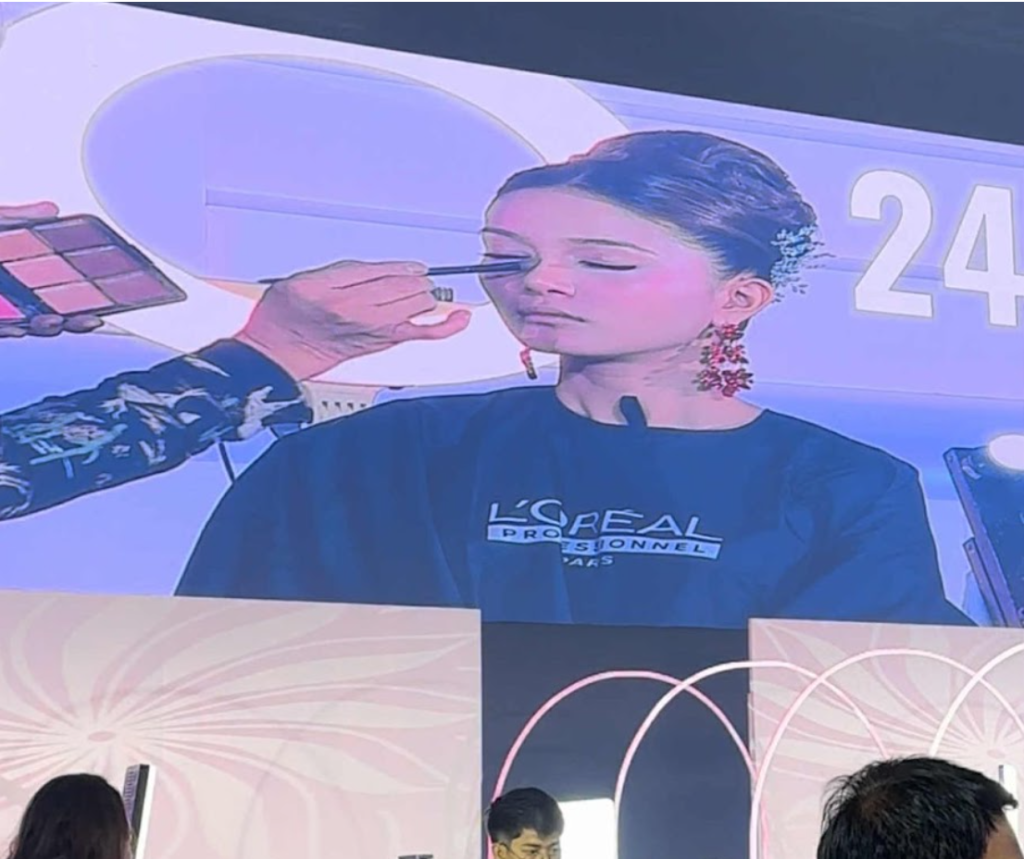
Colene modeling for Hair Asia 2024, a day which she needed to skip class for.
The answer is yes, but it requires the right strategy. If you are a working student, you should find the one that works best for you. As for me, I hold onto three things: motivation, intentionality, and luck.
Being a self-employed student requires towering diligence and discipline—not just to keep the income flowing but also to keep learning consistently. It is easy to advise people “to be disciplined” but what is often overlooked is the crucial action that makes discipline even more operable. That is, listening to your body, specifically, to what your heart desires the most. When I feel lazy or overwhelmed, I pause and ask my “whys.” I go back to the reasons I study and work. Thus, always remember your purpose for action—whether it is a goal to be a sustaining breadwinner or a passion for truth and wisdom. After all, fueled motivation precedes discipline. In his book, A Treatise of Human Nature, David Hume wrote about this similar idea, stating: “Reason is, and ought only to be the slave of the passions.” In this light, discipline becomes a tool that serves my motivations—not the other way around.
In studying philosophy, being a wide reader or an analytical thinker helps, but I am neither of those two—what takes others a single time to read a certain passage takes me at least three times to understand it. Thus, this brings me to my second strategy: being intentional. As mentioned, I am not fond of making strict itineraries, but that doesn’t mean that I do not plan ahead of time. Being intentional means being mindful of the external and internal factors that contribute to fulfillment. That is to say (but not limited to), being mindful of the time to finish academic and/or work-related tasks (external) while knowing one’s capabilities (internal). Once that has been grasped, a forward-looking plan can be attained. For instance, before the previous semester started I knew I needed to work more than usual. So I searched for professors known to give lighter requirements and enrolled in subjects with schedules that suited my availability.
 Colene right after finishing packing parcels for her small reselling business.
Colene right after finishing packing parcels for her small reselling business.
But let’s be real—enlisting in your preferred subjects or professors in UP is no easy feat. The “CRS gods” and the legendary “lucky CRS Pepe” memes exist for a reason. As for me, I always get the subjects I desire. This kind of luck does not only apply in enlistment but also in other instances that necessitates arbitrariness like groupings. In retrospect, I have never grouped with a “pabigat” and often find myself grouped with the smartest students. This kind of good fortune persists even on my sidelines. Others might perceive this as luck but I would rather refer to it as being “favored.”
By whom, you might ask? Well, whenever I try to enlist or am about to partake in things out of my control, I pray not to the CRS gods, but to the God I know. Doing my best through motivation and intentionality is one thing, but being favored by God reassures me that I am on the right path.
Now, why do I need this reassurance? Well, two things—I am not smart and I am a working student. In a competitive environment like UP Diliman, if you are not inherently smart you must leverage as much time studying. But for me, that extra time often goes to work. There are countless times where I wanted to give up and countless nights where I slept under the weight of insecurities. And yet, I somehow managed, holding on to God’s promise.
Currently, I am running for Summa Cum Laude and my career is starting to take off. How? That is because I’ve come to discover and believe in a deeper truth. As it says in Ecclesiastes 9:11:
“I have observed something else under the sun. The fastest runner doesn’t always win the race, and the strongest warrior doesn’t always win the battle. The wise sometimes go hungry, and the skillful are not necessarily wealthy. And those who are educated don’t always lead successful lives. It is all decided by chance, by being in the right place at the right time.”
 Colene recently entered into an official partnership with Barbie.
Colene recently entered into an official partnership with Barbie.
Ultimately, the strength it requires to balance both worlds must come from a solid foundation. Whether it’s your passion, your purpose, or your faith—always return to your reason why.
About the Author
Colene Anne Santos is a BA Philosophy undergraduate senior from UP Diliman who has been working since her teenage years. Her advocacy centers on pursuing your dreams despite life’s obstacles.
“Bachelor of Arts in Philosophy, Minor in Org Life” by Adi Aguinaldo and Pat Dela Cruz
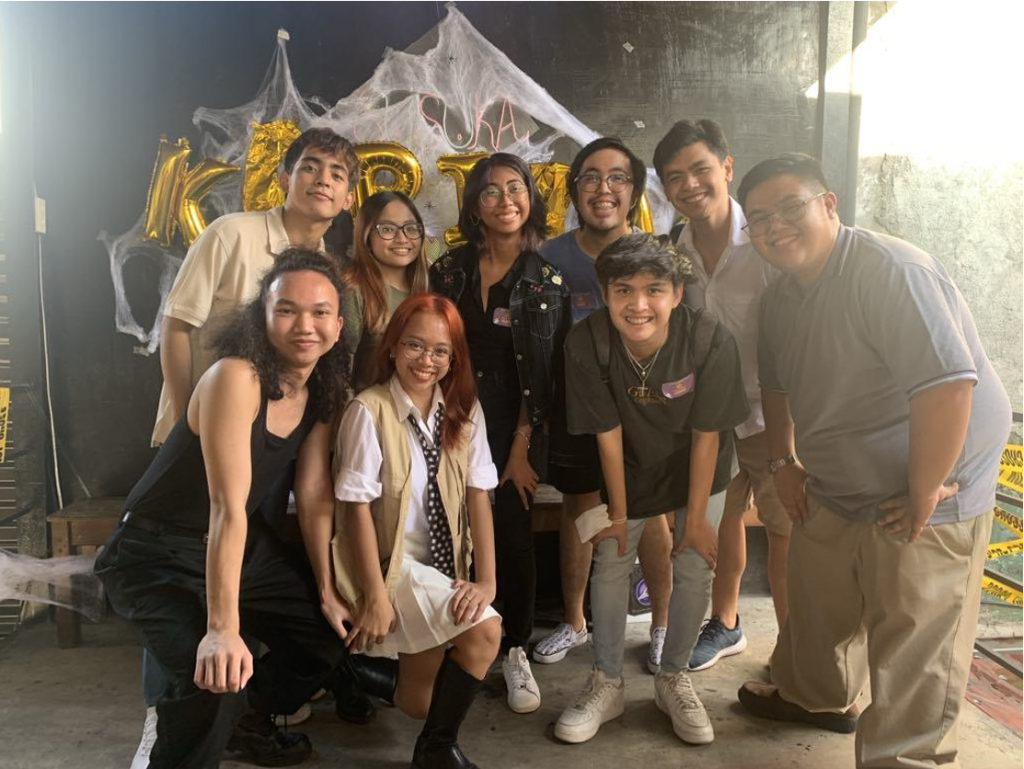
For a lot of Iskolar ng Bayan, joining and being a part of organizations is an exciting experience. After all, it is an avenue where students can hone their skills, connect with people with the same interests, and flourish as students. We joined organizations with that same feeling and thought in mind.
In this article, we talk about how organizations shaped college life for both of us, how being a part of organizations has made it easy for Adi to adjust to college life and how organizations have helped Pat put philosophical theory into practice, in service of the Filipino community.
Part 1: To that one organization who made my life so much easier
“Congratulations! We are pleased to offer you First Year Admission to the following: UP DILIMAN, BA Philosophy. First Semester AY 2021-2022” that was the first thing that I saw when I opened my portal last July 15, 2021. Excitement filled my body but then again, I dreaded another year of online classes without any plans of being offered face-to-face classes sooner. The hardest part was that I was going to meet a WHOLE LOT of new people. It is already hard to socialize with people during face-to-face class so it was even harder for me to get to know people online.
New group chats and new people added me on my Facebook account. Luckily, I had a friend from my high school barkada who also got into the same campus and same course as me, so I didn’t feel alone. The department representative approached us and introduced us to his organization, UP Kabataang Pilosopo Tasyo—a philosophy organization that has promoted Filipino philosophy since 1990. I got curious and signed up for their orientation.
During the application process, I got to know a lot of people in our department. From seniors (shoutout to the executive committee that time) to my co-applicants, I get to know them one by one. My anxiety of being alone in this big university started to fade away. After a couple of months, I got into KAPITAS and there I met my new family.

Batch 2021 applicants and members of UP KAPITAS at Sagul Malingap Foodpark.
September 2022 was when I moved out of our house in my province. But thanks to KAPITAS, I never felt alone. We ate and drank together at Sarah’s in Krus Na Ligas (OGs know this place!), studied together at the CS Library, and sometimes went to Malingap street to eat and drink at Z Compound.
A lot of adjustments had to be made for me to live my life away from what I’m used to but it wasn’t as hard as I thought it would be. Thanks to my organization, I survived 3 years living alone here in Metro Manila. They made things a whole lot easier for me. They are there whenever I need someone to accompany me or just to eat lunch after our major classes. They are my home away from home.
Part 2: To that one organization who I can’t live without
Although it isn’t a requirement for an Iskolar to join one or multiple organizations, I would say my undergraduate life would not have been complete without it. Being a part of organizations shaped my advocacies, brought me closer to the communities, and helped me develop as an individual, a philosopher, and an Iskolar ng Bayan committed in service of the Filipino community. The organizations you can apply for and join are plenty, but the organization that I hold dearest is my home organization, UP KAPITAS.
I don’t think I ever doubted whether I should join UP KAPITAS or not — it was a given, not because I was pressured to apply like my peers, but because I knew from the people, I would find my home here.
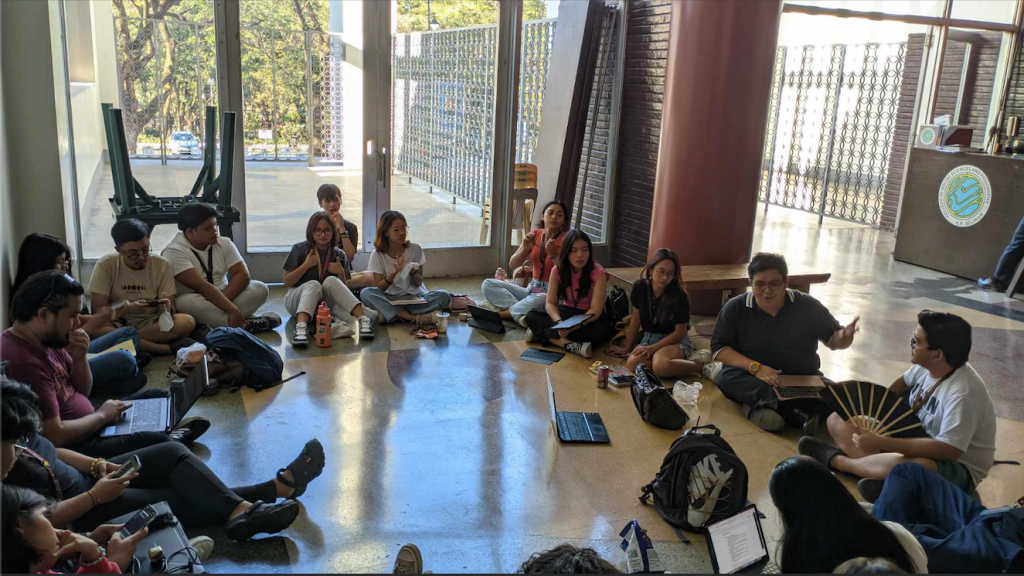
UP KAPITAS during one of our General Assembly meetings held at the 1st Floor Lobby, Palma Hall
As Adi mentioned, they were the first ones to welcome us into the department and into UP. They introduced me to my upperclassmen and professors. They gave me various tips and tricks that I eventually passed down to lower classmen — from how to survive particular classes to where to eat in Area 2. Before the renovations in the third and fourth floor of Palma Hall, our tambayan was located on the third floor in between the East and West wings. Some of our philosophy classes were held on that floor, and so after classes, I would usually see them there, lying on the floor, playing board games, or doing other academic requirements. We would study for exams there and debrief with each other post-exams.
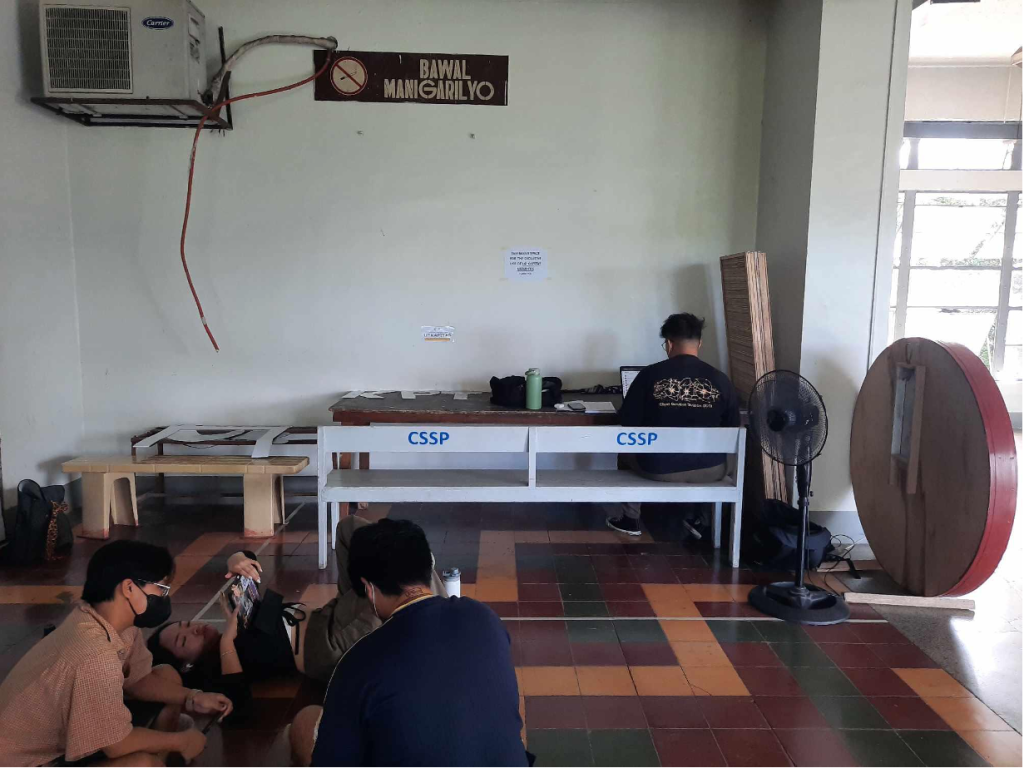
UP KAPITAS members at our tambayan
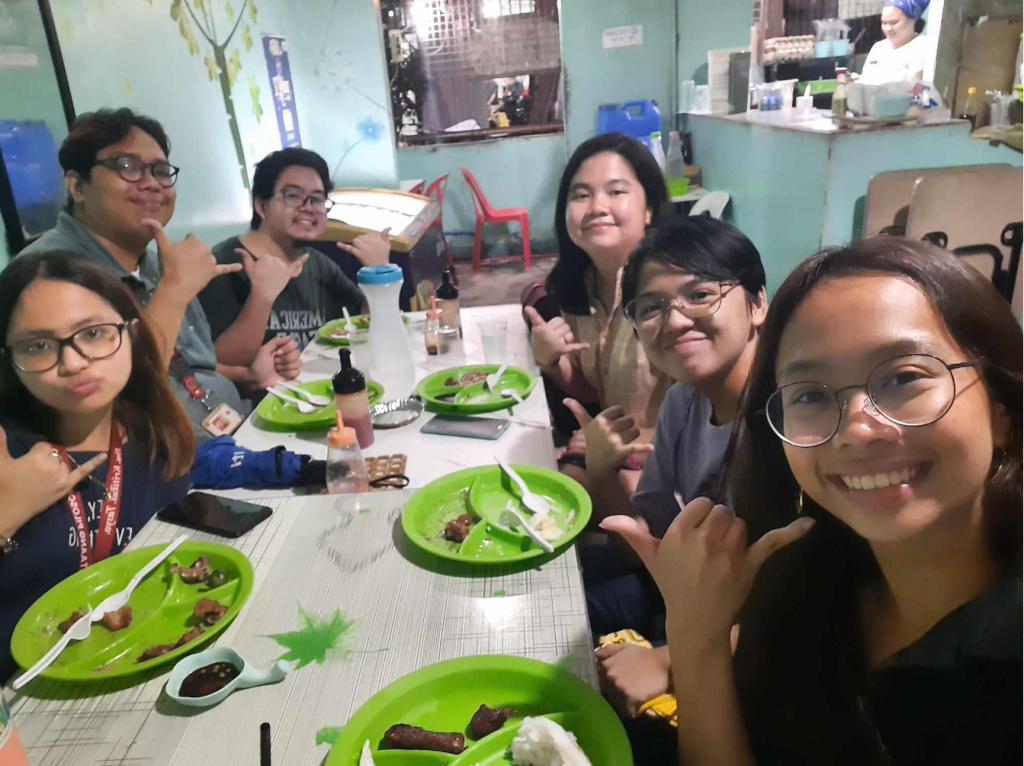
UP KAPITAS members eating at Area2
More than that, what holds our close bond goes beyond personal relationships – after all, UP KAPITAS prides itself for its commitment to the development of Filipino Philosophy. UP KAPITAS has organized countless events that have been a staple for our organization such as BANYUHAY, the inaugural undergraduate philosophy conference and DALUMAT, a series of lectures discussing the current status of Filipino philosophy. We pride ourselves for our Alternative Classroom Learning Experience (ACLE) in which we have put theory into practice in a creative way, deepening our understanding on current national issues by incorporating philosophical lenses on these. We also pride ourselves for our socio-civic activities centered on particular communities and specific campaigns such as gender rights, and the fight to end all enforced disappearances.
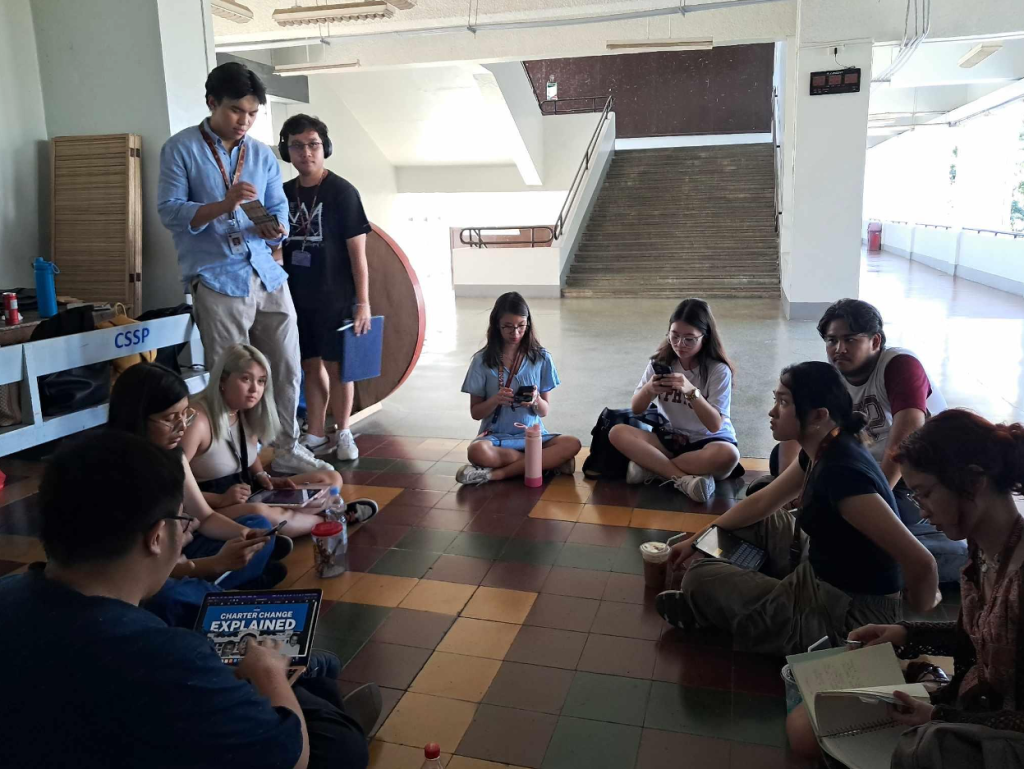
UP KAPITAS members conducting an educational discussion on Charter Change at the Tambayan, 3rd Floor Palma Hall
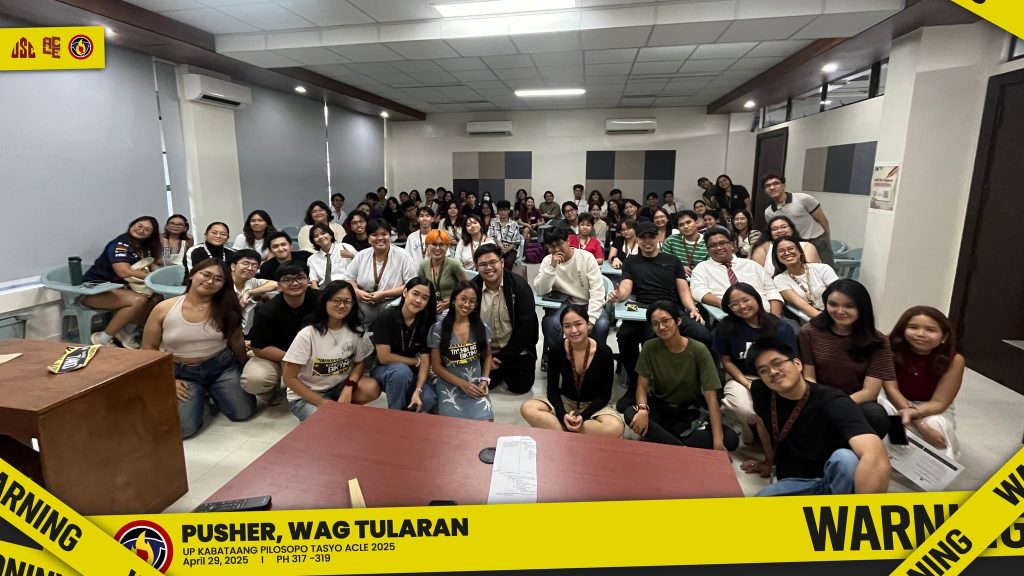
UP KAPITAS Alternative Classroom Learning Experience 2025 entitled: “Pusher, Wag Tularan”
Looking back, I am grateful that I have found my home in UP KAPITAS throughout my undergraduate life. I would not be the person I am today without them and I hope every Pilosopo ng Bayan finds their home during their stay in UP, wherever or whatever it may be.
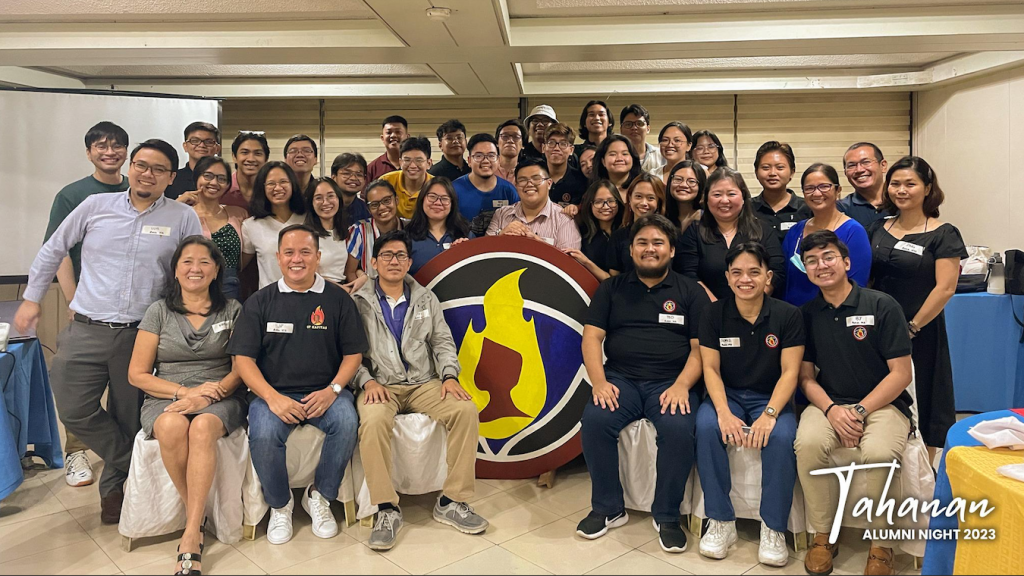
UP KAPITAS Alumni Night 2023 featuring different batches of Tasyos and Tasyas
Bionote
Both Adi and Pat applied for UP KAPITAS during the 1st Semester of AY 2021-2022, their freshman year.
Lady Ruth “Adi” Aguinaldo has been a resident UP KAPITAS member since 2nd Semester of AY 2021-2022. She served as the Recruitment Committee Head last 2nd Semester of AY 2023-2024. She is currently a member of the Externals Committee. As a member of the Externals Committee, Adi helps in reserving venues and equipment for the success of the organization’s events.
Adi was also part of the CSSP Student Council in AY 2022-2023 as Councilor. She served as the Head of the Education, Training, and Popular Struggles Committee.
Patricia Mae “Pat” Dela Cruz is the current Kalihim of UP Kabataang Pilosopo Tasyo (UP KAPITAS). She is a resident member of UP KAPITAS since 2nd Semester of AY 2021-2022 and immediately served as the Head of the Public Relations Committee during that semester. As the Kalihim of UP KAPITAS, she makes sure that the organization keeps on running smoothly and efficiently. She makes sure that events are in order and that the members are well informed of all projects and events of the organization.
Pat was also a member of SALIGAN sa CSSP from 2021 until 2023. She also served as the Philosophy Department Representative of the CSSP Student Council AY 2022-2023. She also served as the Convener of Apeiron Core Group AY 2022-2023. She was elected as the National Chairperson of the 44th KASAMA sa UP National Executive Council last AY 2023-2024. She is also currently the Externals Head of UP Alyansa Para sa Maykapansanan Para sa Mapagpalayang Lipunan (UP AKAY).
“Friendship within the BA Philosophy Program” by Sofia Luna, Alyssa Galing, Claire Tamayo, and Jan Albert “Choco” Estioco
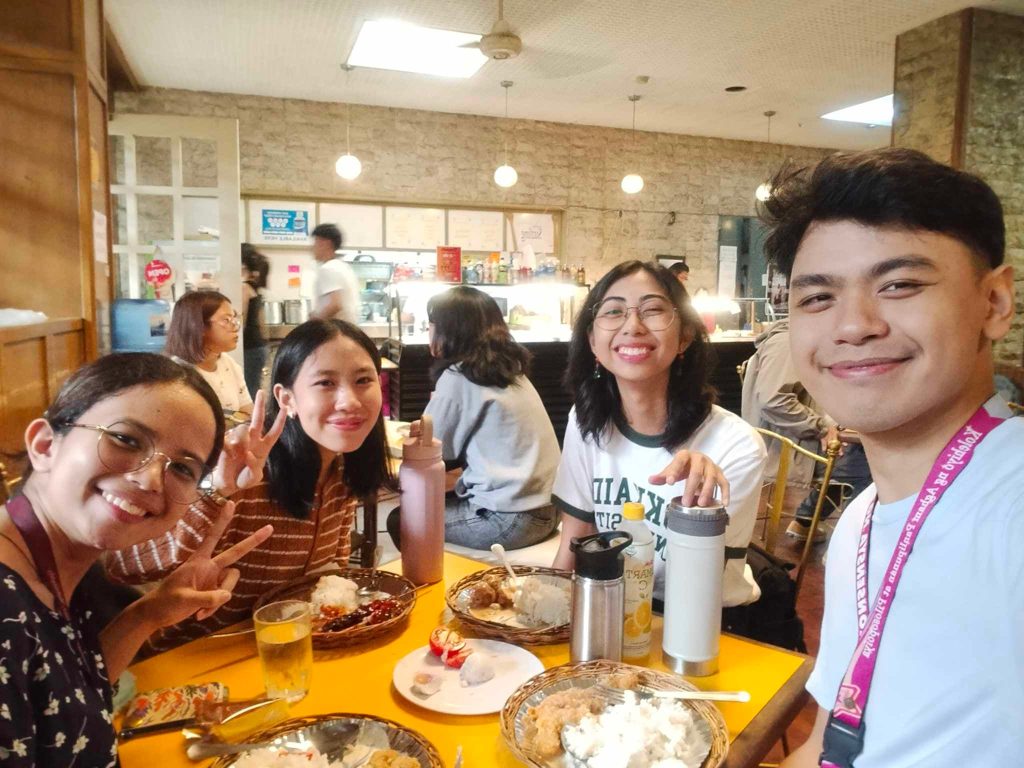
The thing about university life is that meeting new people is inevitable. Every semester, there’s a chance to socialize and mingle with different sorts of people. This makes friendships in university diverse. As part of shaping and figuring out yourself, you have the freedom to explore and see the kinds of people you want to hang out with. With this, entering university can be a life-changing experience based on whom you decide to hang out with. While your focus may go to finishing academic requirements, attending classes, and doing organizational work, it is indeed the people who are at the core of everything. Friendships forged in university are impactful and reliable sources of support. Having a strong network of friends that you can count on is a reminder that no matter how busy life can get, there will always be people who can make it bearable and, dare I say, far more enjoyable.
Now, friendships come in many different ways, whether you’re orgmates, batchmates, or a fun combination of people taking up different majors, the possibilities are endless. To give you an idea of how friendship is in university, particularly under the Philosophy program, here’s an inside scoop on how our friendship came to be. Hopefully, you’ll have another idea of what to look forward to beyond academic and extracurricular work.
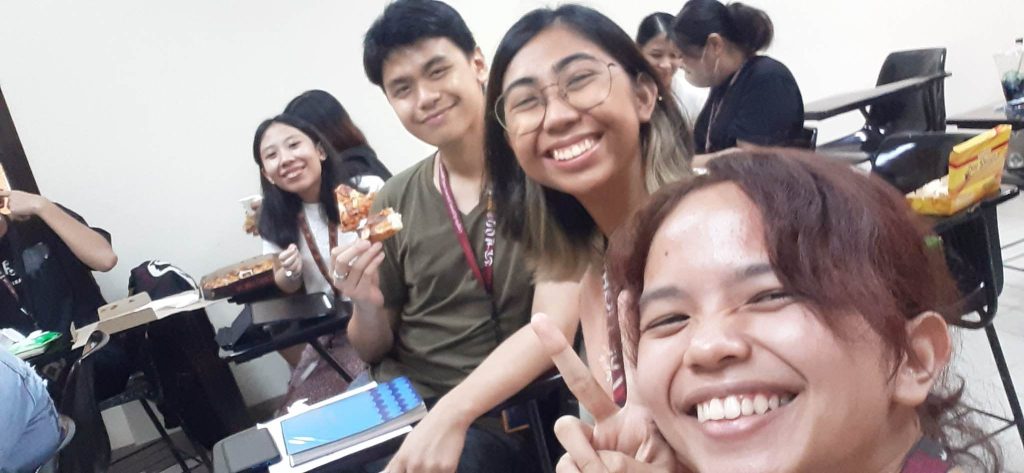
From left to right: Sofia, Choco, Claire, and Aly’s first ever group photo: Polsc 14 YR2 02
WHO’S FREE? LET’S HAVE LUNCH!
Admittedly, being a pandemic batch, it was not easy finding our people. The distance and computer screens gave a detached air that largely impeded our capacity to form solid friendships. Despite more opportunities to connect online via messenger chats and zoom meetings, we mostly knew each other by name and their profile picture (that is, if they have one). However, our batch persisted, and some have initially found their group of friends, but for the four of us, things started to take off when face-to-face (F2F) classes began. It was the summer of 2023, the 2nd semester of our second year in university.
Surprisingly, it wasn’t even in a Philosophy subject that we became close, but rather it was a GE (general elective) subject called Polsc 14 (Philippine Government and Politics) that we coincidentally took at the same time. We were four different people with four different personalities and completely different interests that unexpectedly meshed well. Fortunately, a dynamic friendship had taken form.
As we got along, having lunch together seemed to be the best opportunity to bond and get through the day. The common phrase heard between us would be “Mamaya na yan, kain muna tayo.” or “Who’s free? Tara kain lunch!!” As we began to know each other, we discovered that we had several philosophy subjects that we were all simultaneously taking together! Particularly, we were surprised to find that we were all students under Sir Valero’s Philo 110 (Ancient Philosophy), the first of the four history of philosophy courses every philosophy undergraduate must go through. It was hard to know people by face then because everyone was wearing masks; it was a guessing game to know who’s who, but we were fortunate to have found each other.
Generally, to give a rough idea of the dynamic, Choco is the big brother of the group. He had everything in his giant backpack. Sick? He has every medicine you can think of. Dirty hands? Fear not, he’s got wipes and tissues on the go. He’s also the group’s eldest. Claire is the chill and cool sister. At first, you’d think she’s stoic about everything, but she’s the most sociable among the four of us – our Ms. Worldwide. She’s often the one initiating and planning the group hangouts. Without her, this friendship might’ve sunken into idleness. Then, we have our fiery sister Alyssa (Aly for short). Sharp quips and witty remarks are a staple. Her honesty and vulnerability make her a deep and wonderful friend. Whether it is a rant from an overdue paper or an unexpected meetup with college crushes, she will always be there to listen and accompany you. Lastly, the “baby” sister of the group, Sofia is the group’s little ball of radiating energy. A friendly face with an optimistic aura, she is always beaming with hope and smiles. Never truly misses a beat to greet you with a warm ‘hello!’ and always tries her best to hang around despite her busy schedule. Now that you have met the gang, let us move on to how the four of us handle this crazy journey together of being philosophy undergraduates.

From left to right: Aly, Sofia, Claire, and Choco eating at NISMED YR401
ON STUDYING PHILOSOPHY TOGETHER…
Studying philosophy is, admittedly, not a walk in the park. Some texts that we were assigned to read date back hundreds of years. Most of them are dense, convoluted, and riddled with modal logic. As a group of Philosophy majors, we only had one another to rely on; after all, who else would understand our ramblings and rants?
We became soundboards to each other, bouncing off ideas, arguing for and against our stances, in order to grow as budding philosophers. Critical thinking, clarity in writing, epistemic humility, and sharpness in thought are required to process philosophical texts from the ancients to the contemporaries. Arguing requires a deep understanding of the philosophers and their frameworks to establish the groundwork for a well-written philosophical paper. Thus, we did our best to collaborate and find little moments in between classes and breaks where we could all just share what we know and what we wish to know about philosophy. It also helped that we had different research interests—Choco with logic, Claire with socio-political philosophy, Aly with bioethics and philosophy of mind, and Sofia with philosophy of law—so it only made sense for us to reach out to one another if we felt like we needed help in one another’s forte.
Inevitably, our friendship group eventually formed little routines. We had random food trips to A2, Nismed, or UPTC (when we feel generous), tambays in front of the Department’s office while waiting for classes, to sitting in on each other’s classes (shoutout to Sir Ato for always letting us sit in his Bioethics class). When the semester started to pick up, it became review calls on Discord and Messenger, trading notes, and procrastination poorly disguised as “study/sanity breaks.” Post-exam crashouts were a must; these consisted of (1) debriefing sessions, (2) going to karaoke and screaming our little hearts out, or (3) eating food we had been craving as a reward for surviving. In short, these routines became a source of collaborative study strategies that supported each of us to get through each semester. We couldn’t imagine having gone through it all without each other.
SENTI MOMENTS AND REFLECTIONS
As the semester came to an end, we made sure to bask in the moment and enjoy the last day of our classes to the max. Much like other seniors, we had our senti moments and looked back at the chaos that was college. The group was lively, cherishing the feeling of being complete—that despite our hectic schedules, our never-ending exams, and our many, many papers, we managed to survive.
We have reached the point where we have each learned different life lessons at the end of our college lives. Realizations about perseverance, resilience, self-discovery, freedom, and humility are all that we shall cherish and bring with us as we enter a new chapter in our lives. Despite the slow start of our budding friendship, the four of us managed to stick together, from sharing moments of laughter and calmer days to experiencing random, yet profound, philosophical and existential crises. From the highs to the lows, we’re lucky to have each other. With all that, this friendship of ours has truly been such a fun and wild ride. Our college life may come to a close, but we believe that our friendship will be strong enough to transcend beyond this chapter of our lives. As you embark upon this journey, we hope that you may also find friendships that you will come to treasure in university and beyond.
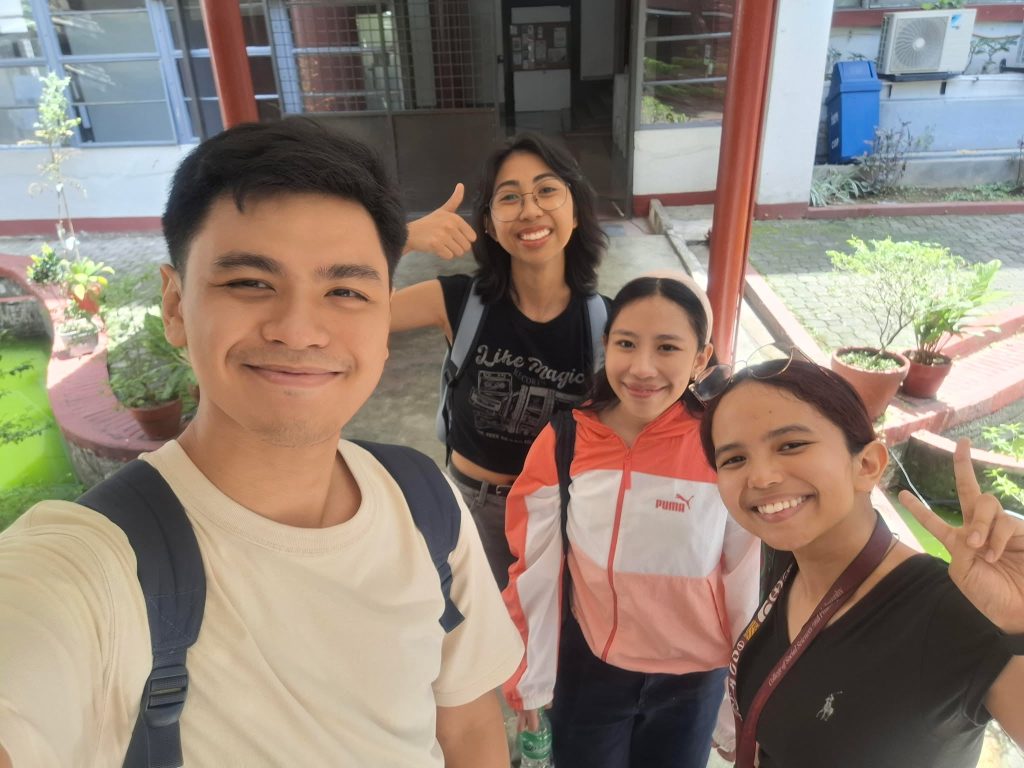
From left to right: Choco, Claire, Sofia, and Aly on the last day of classes YR402
ABOUT THE AUTHORS
Sofia Kisse Luna, Alyssa Rae Galing, Claire Giasmine Tamayo, and Jan Albert Estioco are senior philosophy students running for magna cum laude.

